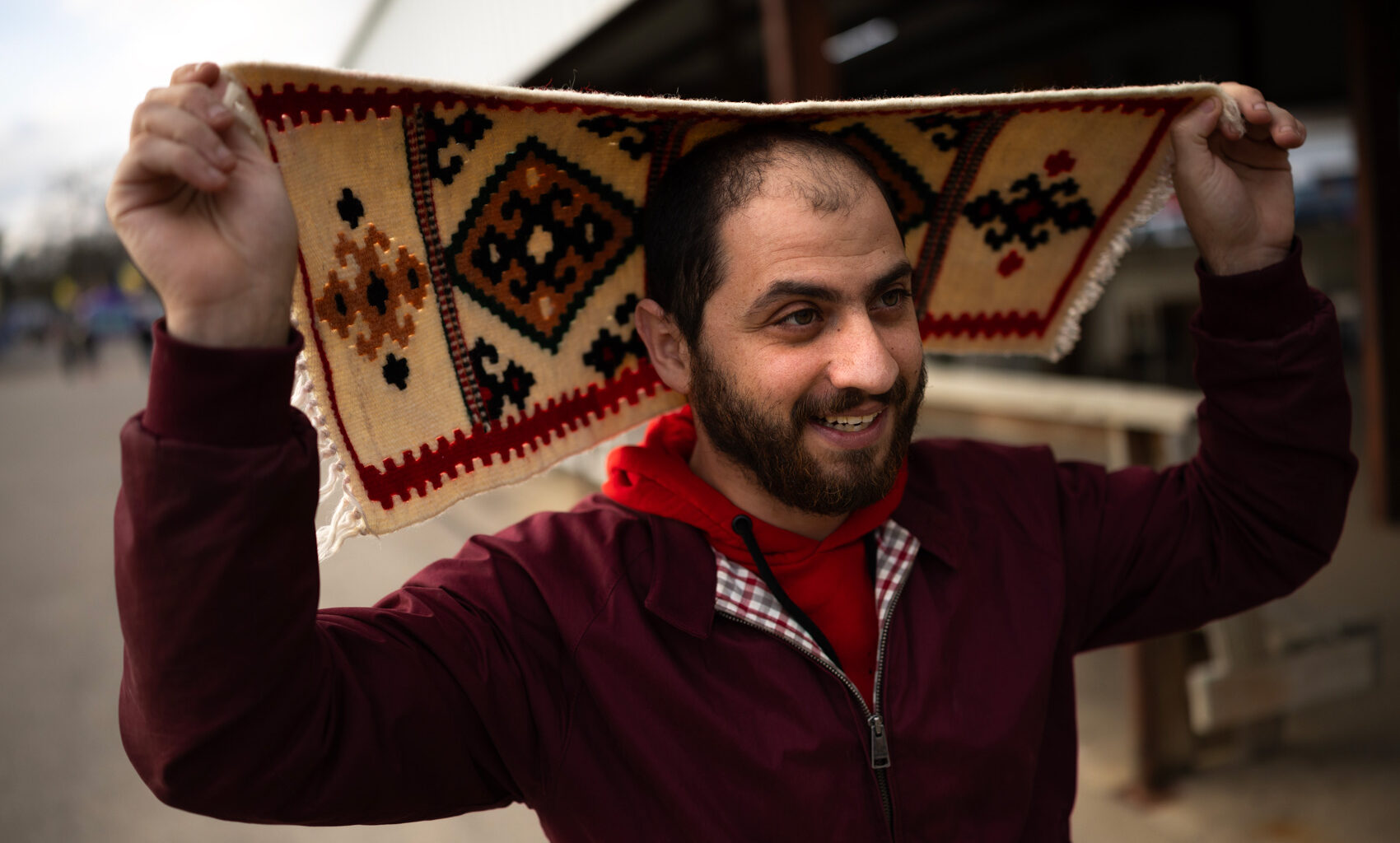In a two-bedroom apartment in Kingwood, Mahmoud Koseyaem sits on a red sofa. His eyes roam over the wall, only breaking to take a sip of black tea. He’s examining his latest tapestry: a profile of a buffalo. The wall is host to a weaving frame he invented, different from his larger, more traditional loom, which is too large for this space. He’s made it work, though, even if he is far from his hometown of Aleppo.
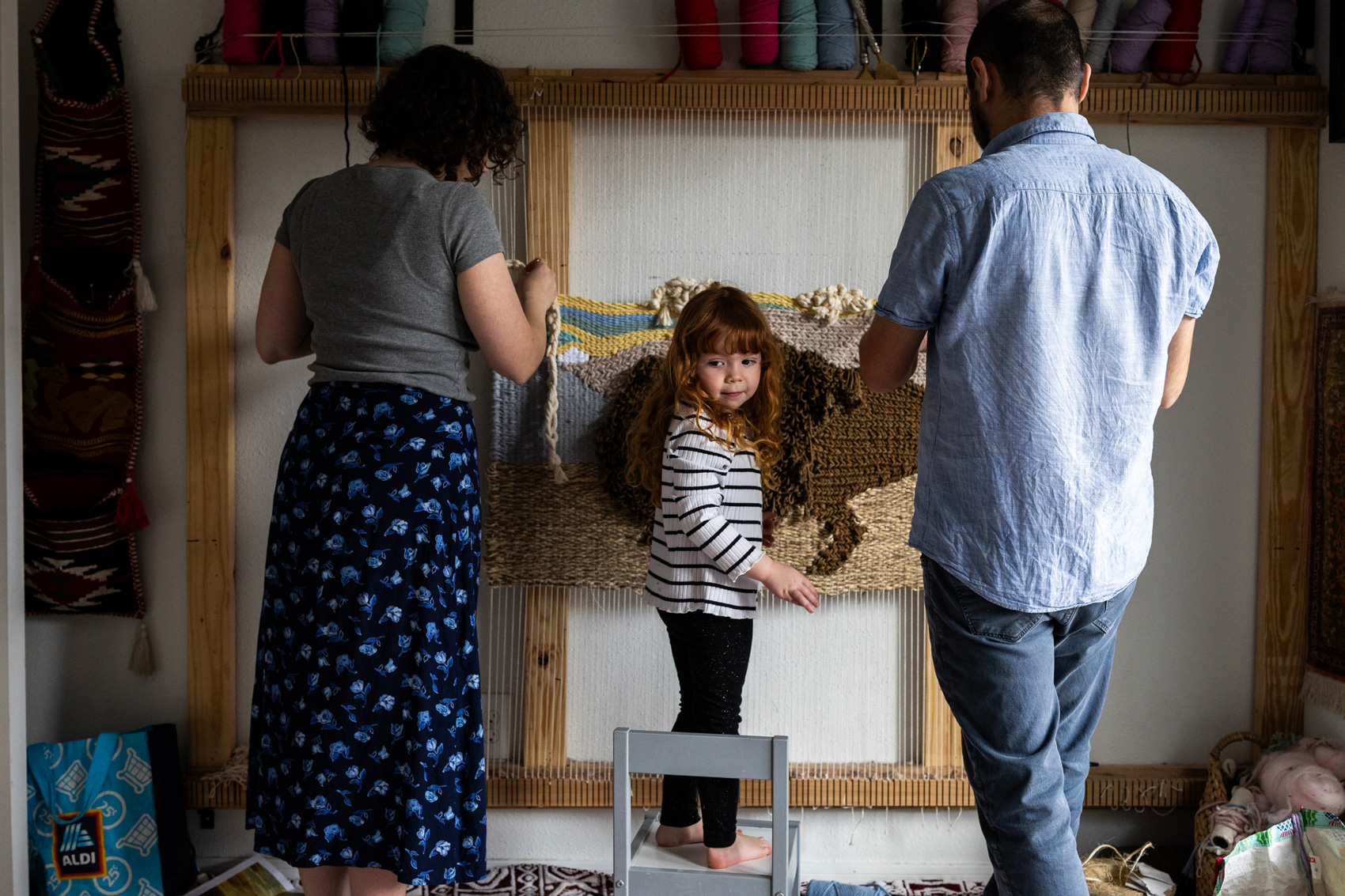

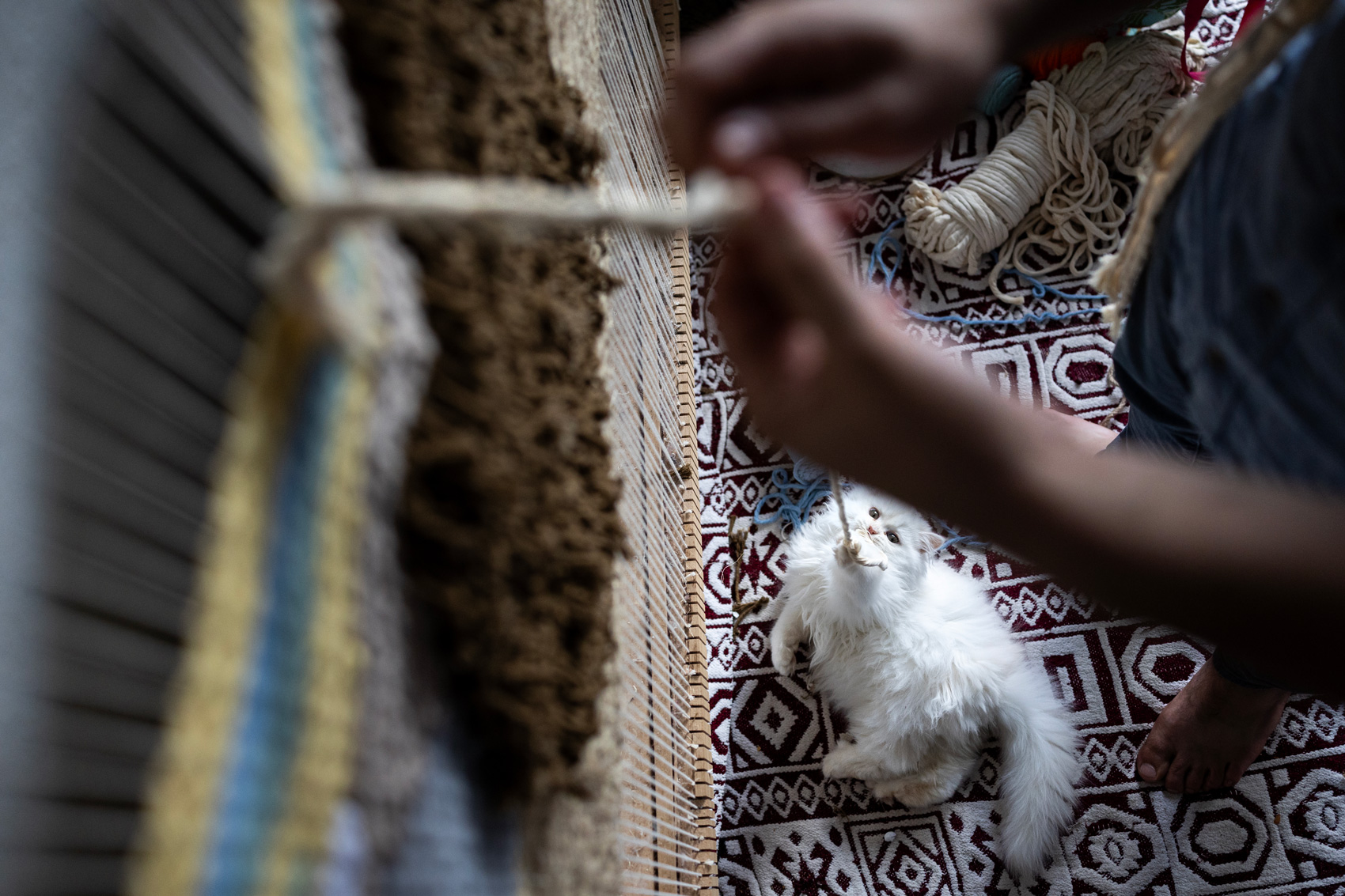

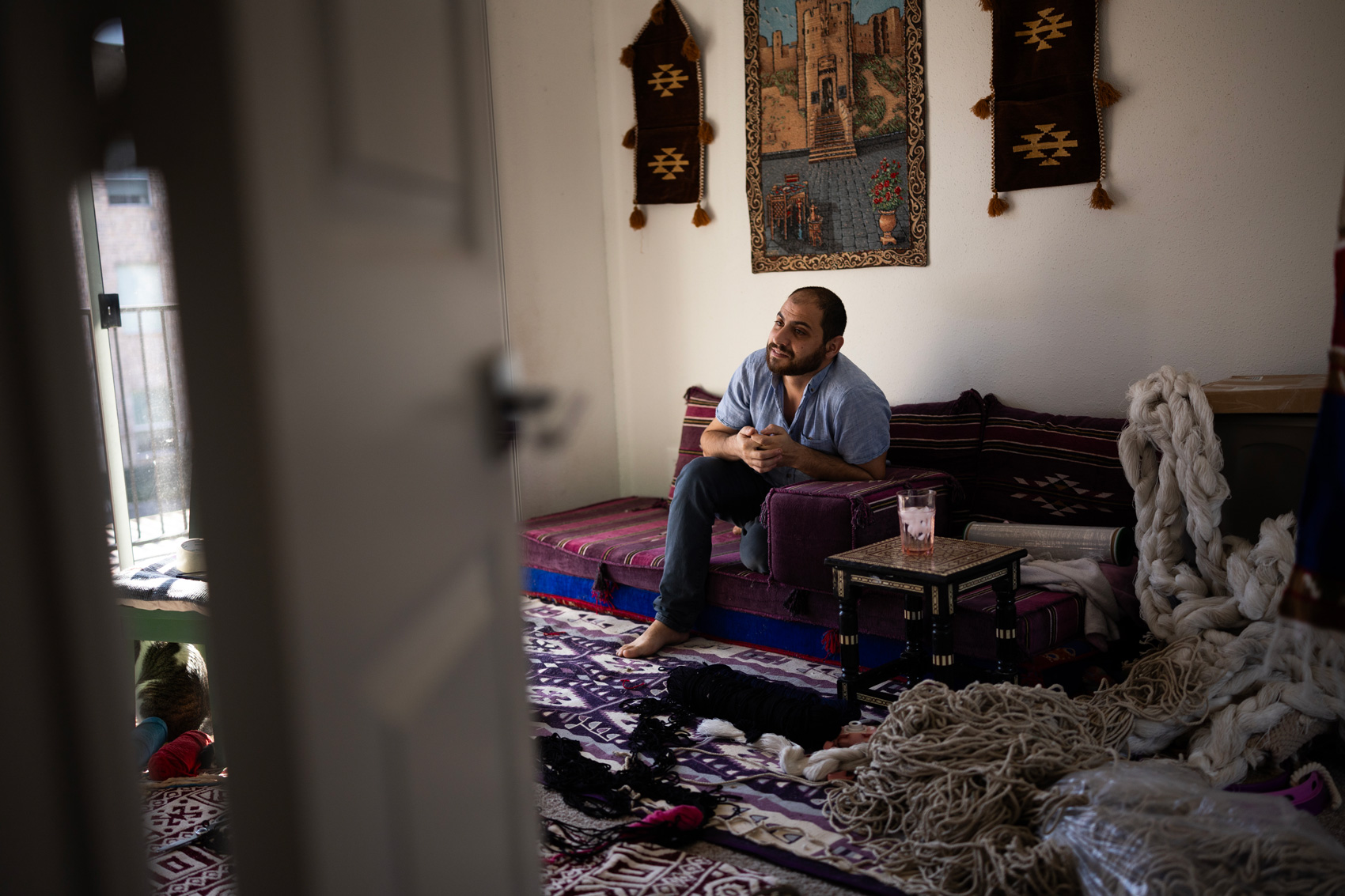

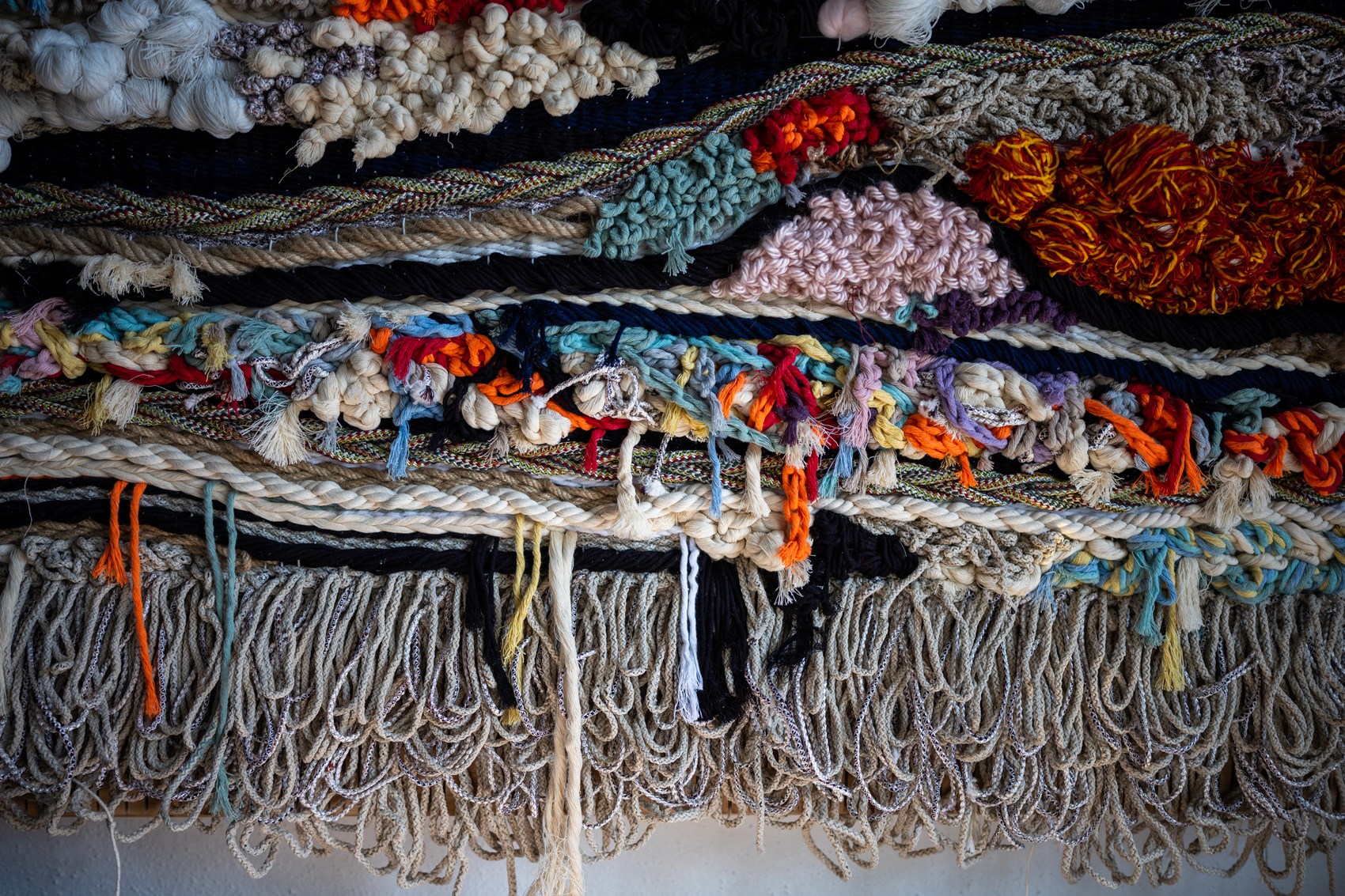

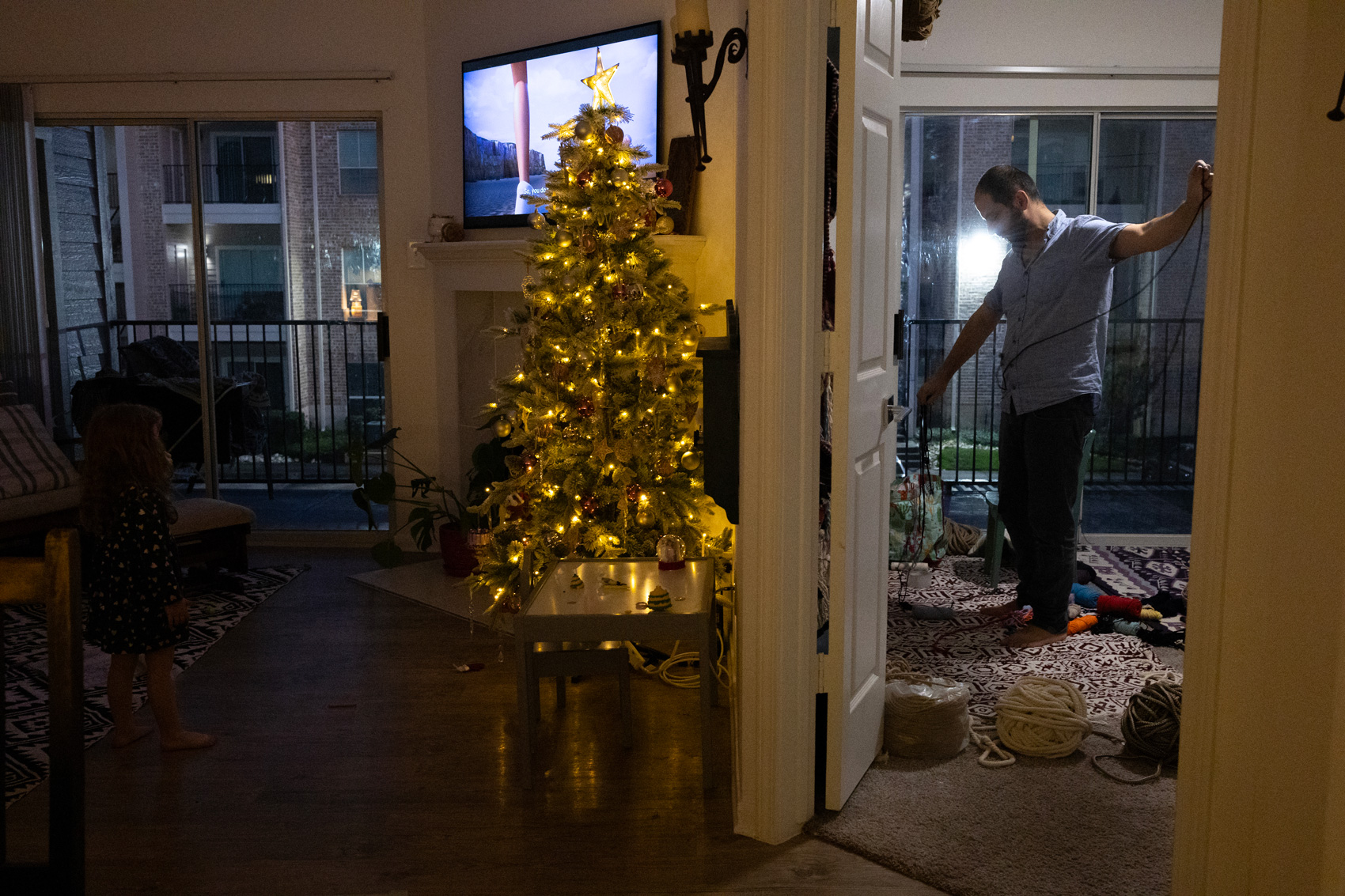
 Mahmoud Koseyaem weaves a commissioned tapestry of a buffalo using his unique styles of knots to add dimension to the piece. Koseyaem invented the style of loom he uses in his Kingwood apartment after realizing the traditional loom was too big for the space. (Antranik Tavitian / Houston Landing)
Mahmoud Koseyaem weaves a commissioned tapestry of a buffalo using his unique styles of knots to add dimension to the piece. Koseyaem invented the style of loom he uses in his Kingwood apartment after realizing the traditional loom was too big for the space. (Antranik Tavitian / Houston Landing)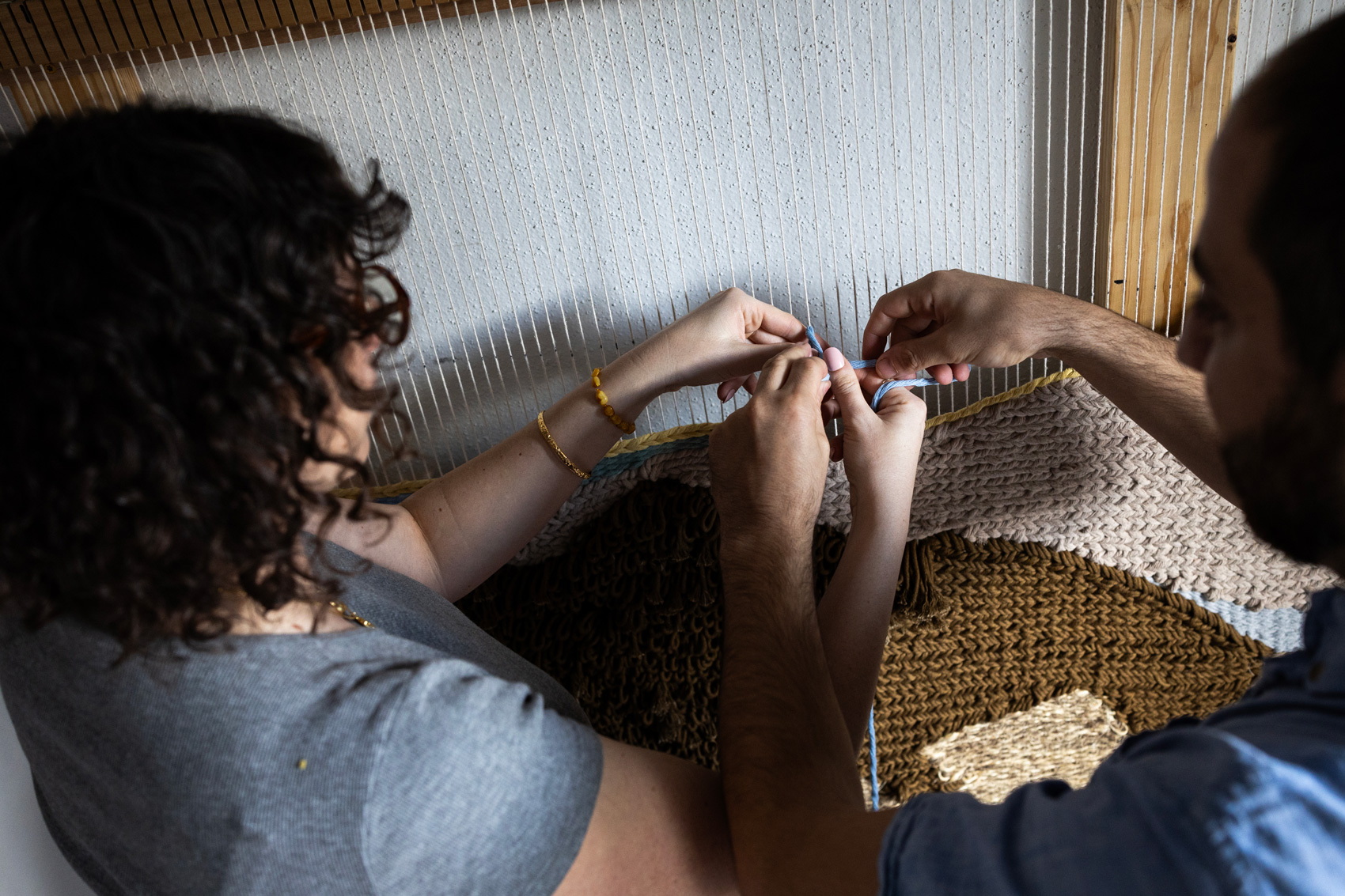

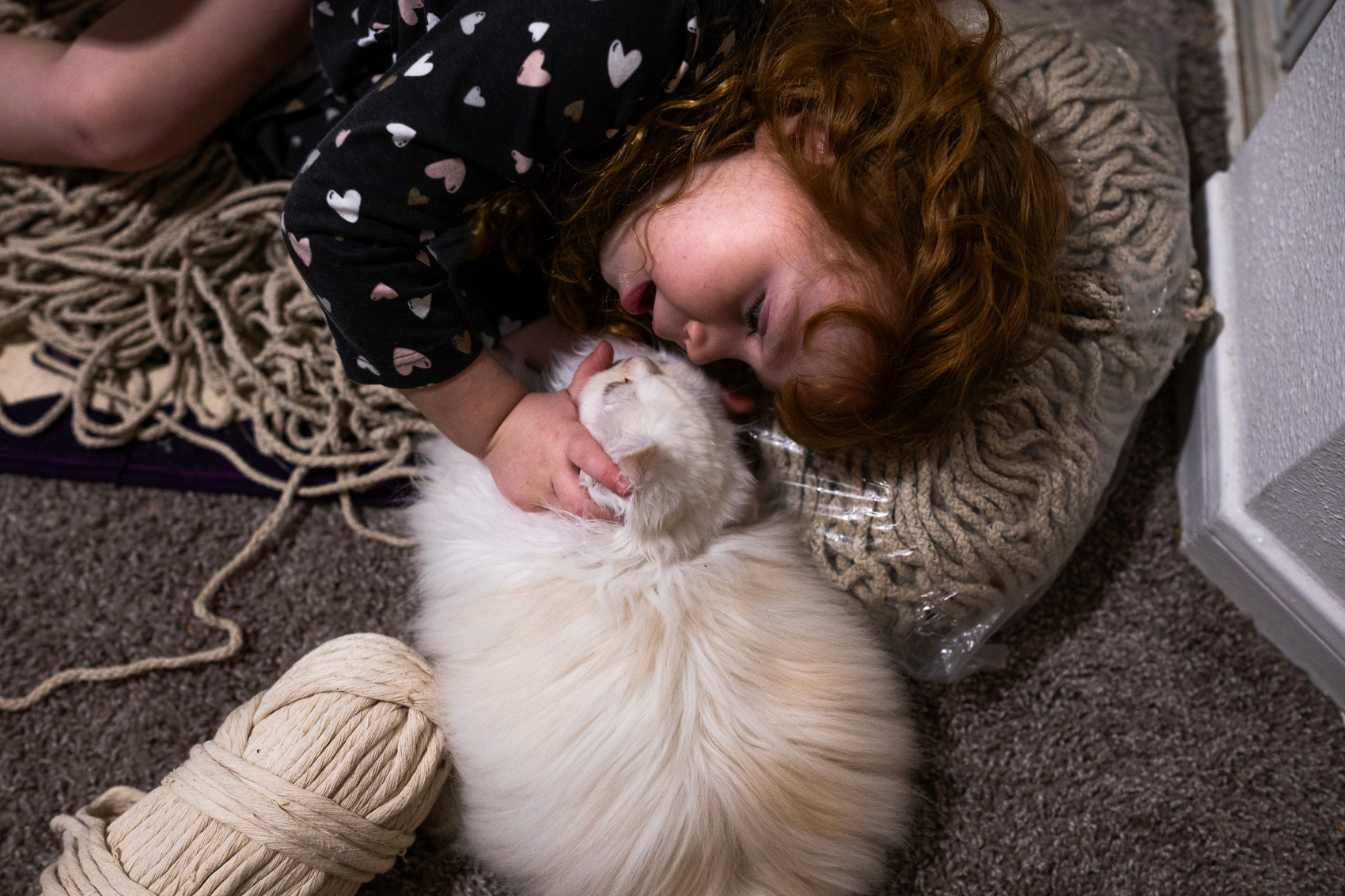
 Alyssa Young and Mahmoud Koseyaem met in Dubai while Young was traveling with her mother. Koseyaem feel for her after he challenged Young, who is also a weaver, to jump on the loom. The couple had their child Mila Rose, 5, in Dubai, moved to Turkey short after to be closer to his brother and finally settled in Houston to be close to Young’s family. (Antranik Tavitian / Houston Landing)
Alyssa Young and Mahmoud Koseyaem met in Dubai while Young was traveling with her mother. Koseyaem feel for her after he challenged Young, who is also a weaver, to jump on the loom. The couple had their child Mila Rose, 5, in Dubai, moved to Turkey short after to be closer to his brother and finally settled in Houston to be close to Young’s family. (Antranik Tavitian / Houston Landing)
Koseyaem’s family has been weaving in Aleppo for more than eight generations. His father, Abdulkadr Mahmoud Khsyaem, used to have one of the largest rug stores in Aleppo’s famous Citadel bazaar. Koseyaem practiced weaving there as a child.
At fourteen, he made his first sale: a small rug that took four days to weave, sold to a British man who pestered the family for days about making the purchase.
“He was coming every day to our store looking at the rug, and then he asked, ‘When can I buy it?’”
The customer asked how much Koseyaem wanted for it. He was stumped. “I don’t know a number off my head, and I said 800 (Syrian Pounds). He said, ‘Whatever you ask for, you’re gonna get it.’”
“My dad took the money,” Koseyaem said, laughing. “That’s fine. I’m happy. I like my dad.”
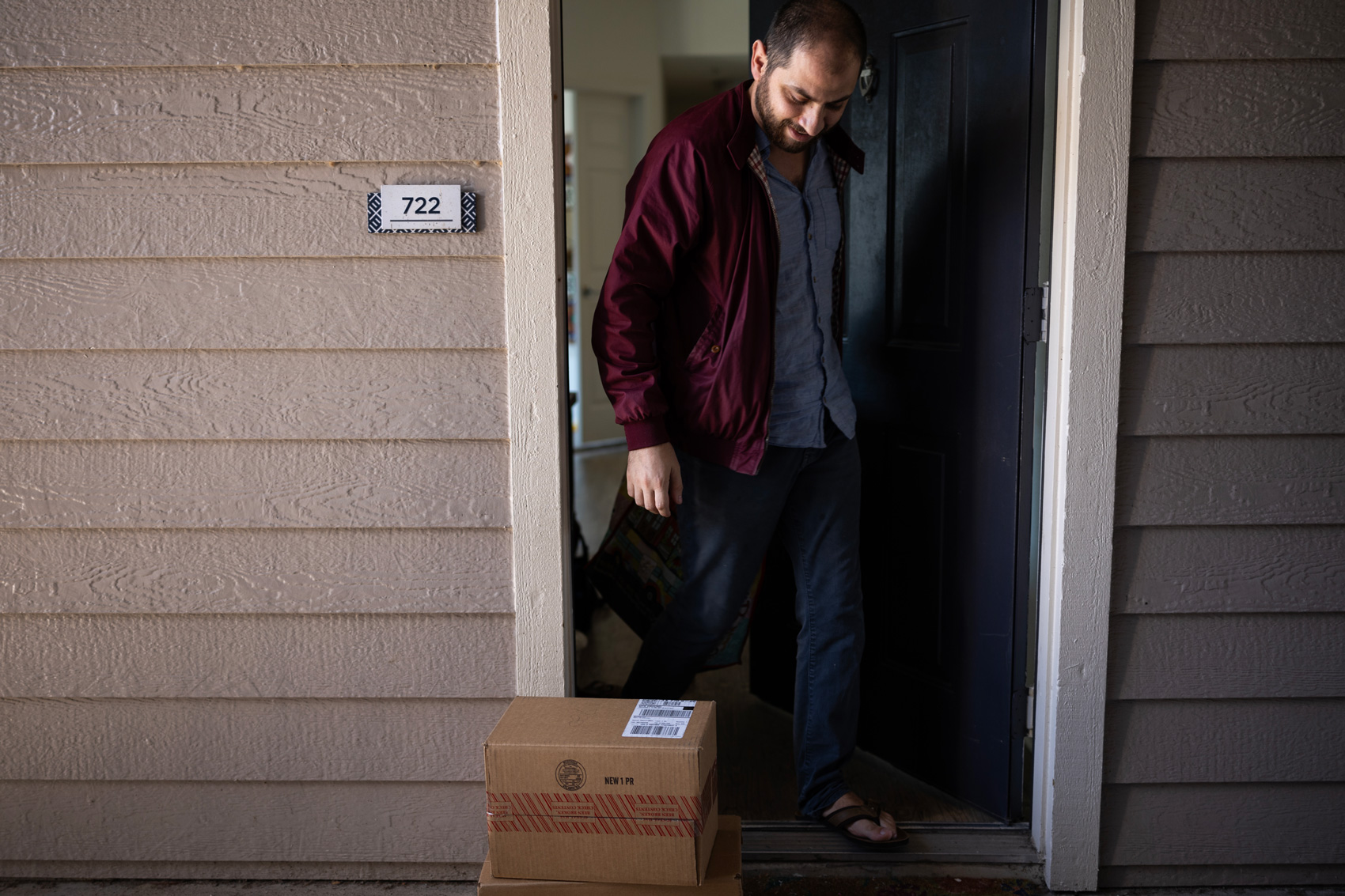

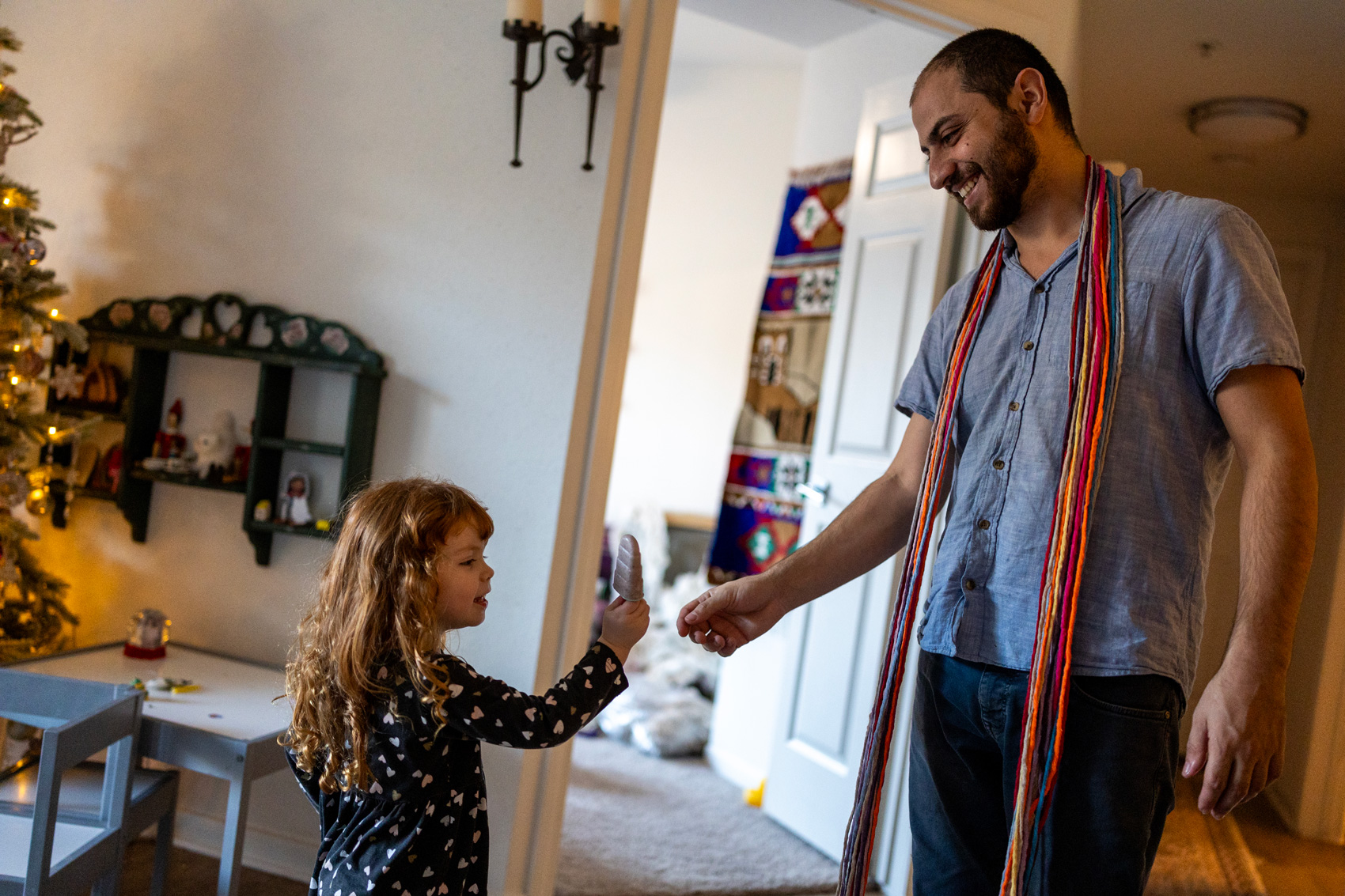

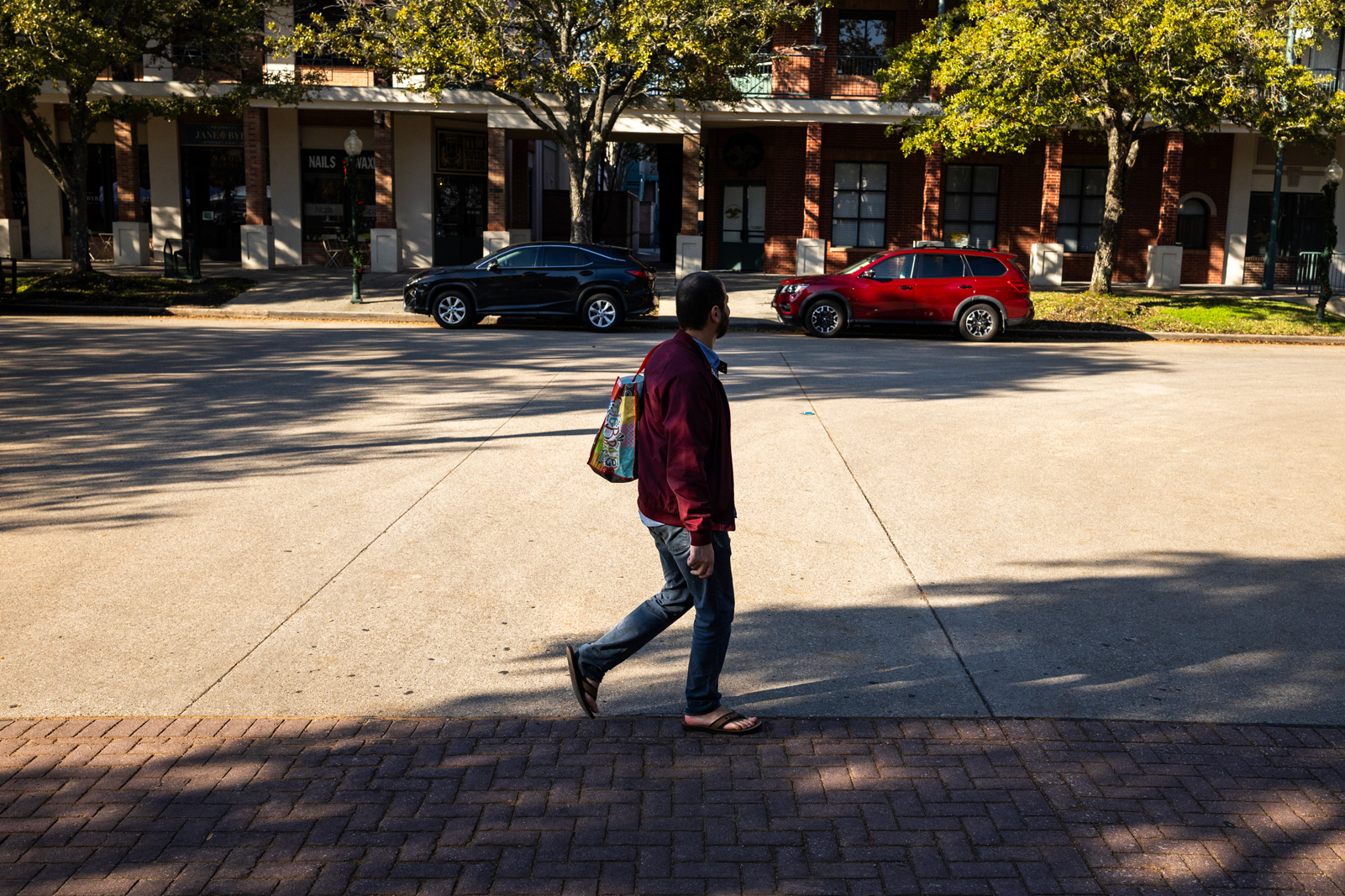
 Koseyaem spend anywhere from 8 to 14 hours a day weaving to prepare for the many markets he sells at. His wife Alyssa Young also maintains the couple’s Etsy page where they sell rugs, Aleppo soup and antiques. (Antranik Tavitian / Houston Landing)
Koseyaem spend anywhere from 8 to 14 hours a day weaving to prepare for the many markets he sells at. His wife Alyssa Young also maintains the couple’s Etsy page where they sell rugs, Aleppo soup and antiques. (Antranik Tavitian / Houston Landing)
Koseyaem first left Aleppo in 2008 to work with his uncle, who sold rugs in Dubai. He returned in 2011 when the Syrian Civil War was breaking out. During that time, he was hospitalized from exposure to chemical attacks carried out by the Al-Assad regime, and was also temporarily detained by government forces. Concerned for his safety and ability to make a living, he again left to settle in Dubai.
He continued selling rugs, and it was in that shop where he met his now wife, Alyssa Young. A weaver herself, Young impressed Koseyaem with her knowledge about weaving. The couple had a child, Mila Rose, in Dubai, and started a business both selling rugs and teaching weaving classes. But the pandemic affected their success, ultimately leading them to uproot again and move to Young’s hometown, Houston, in 2021.
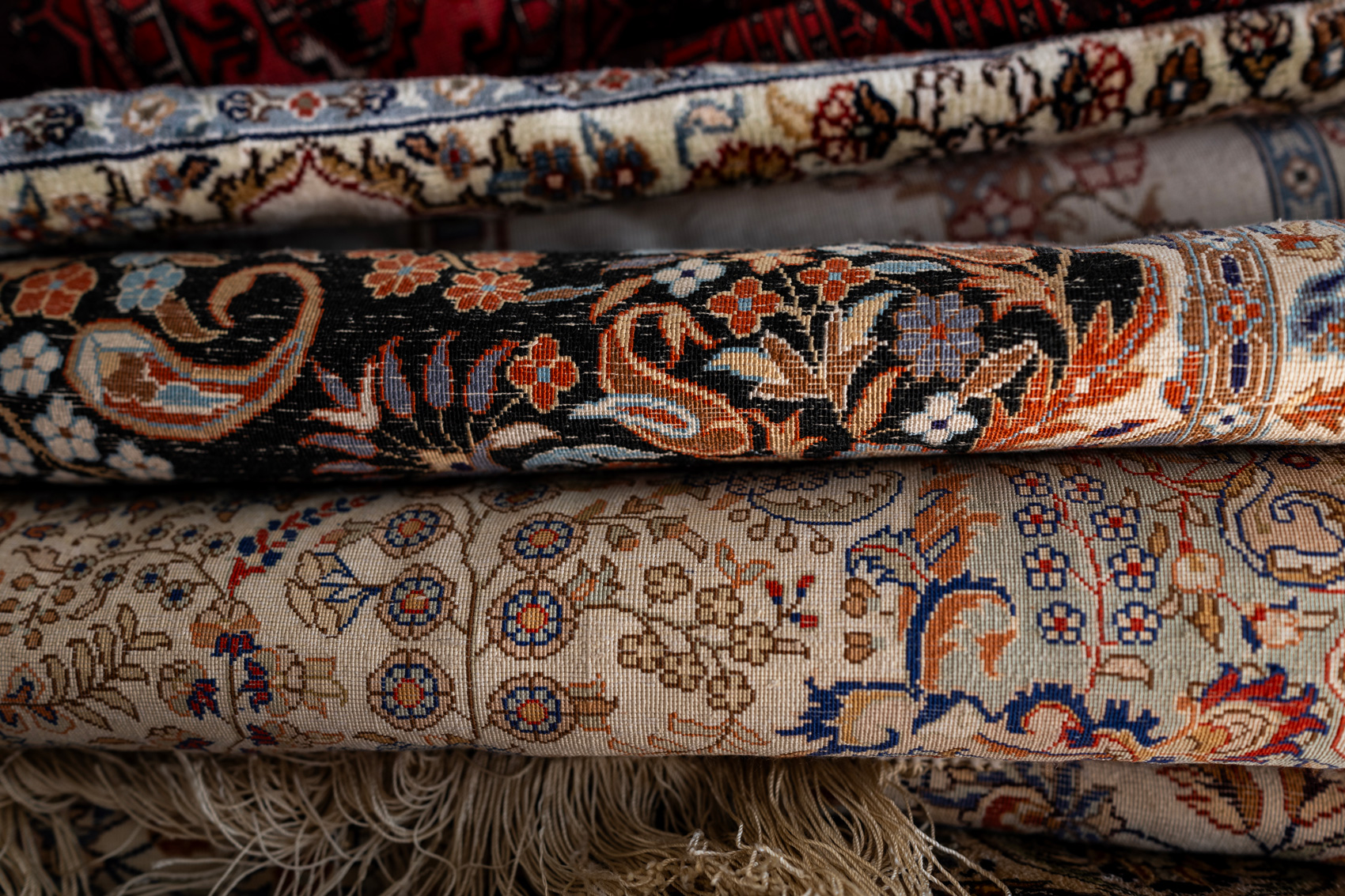

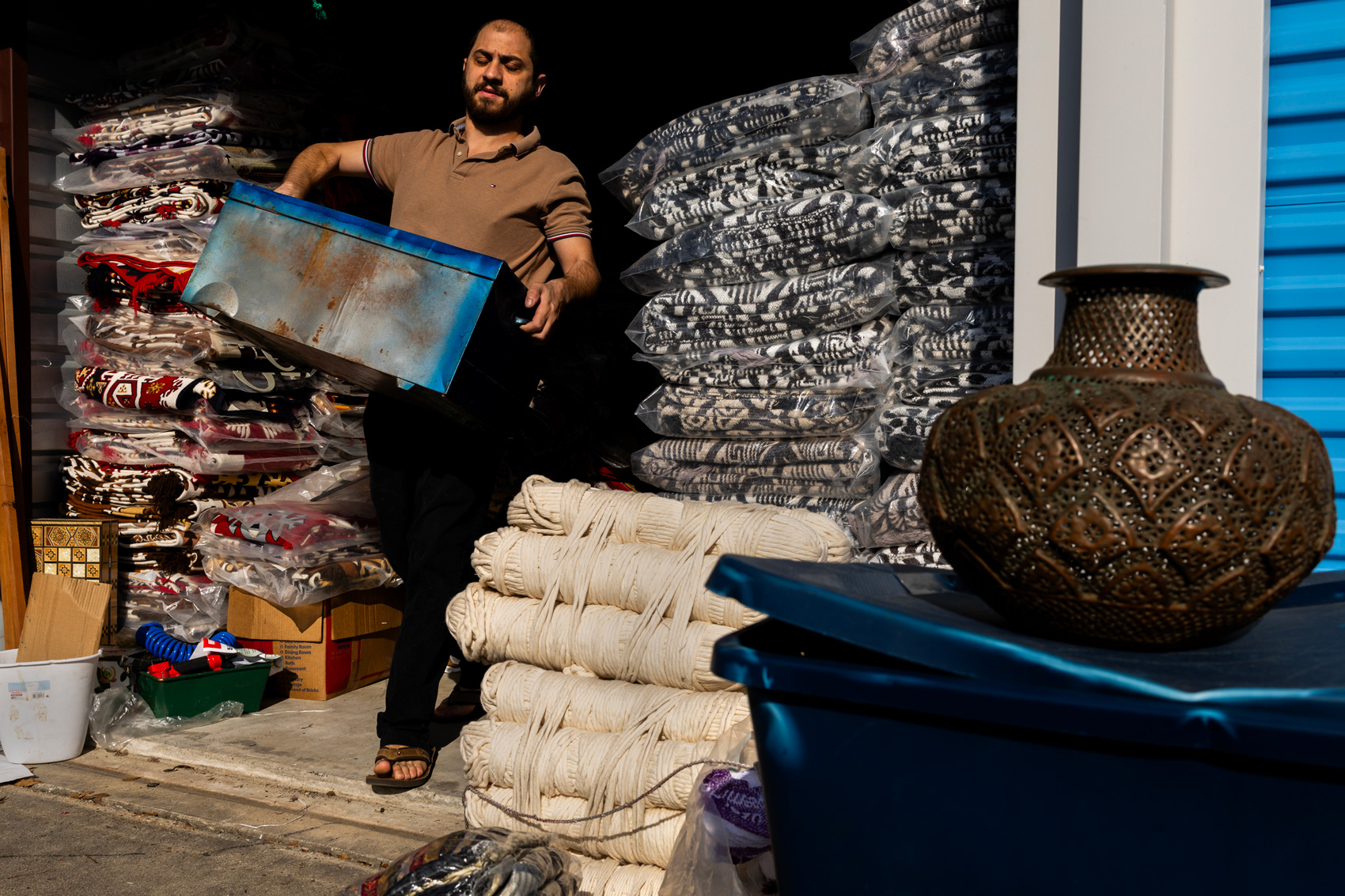

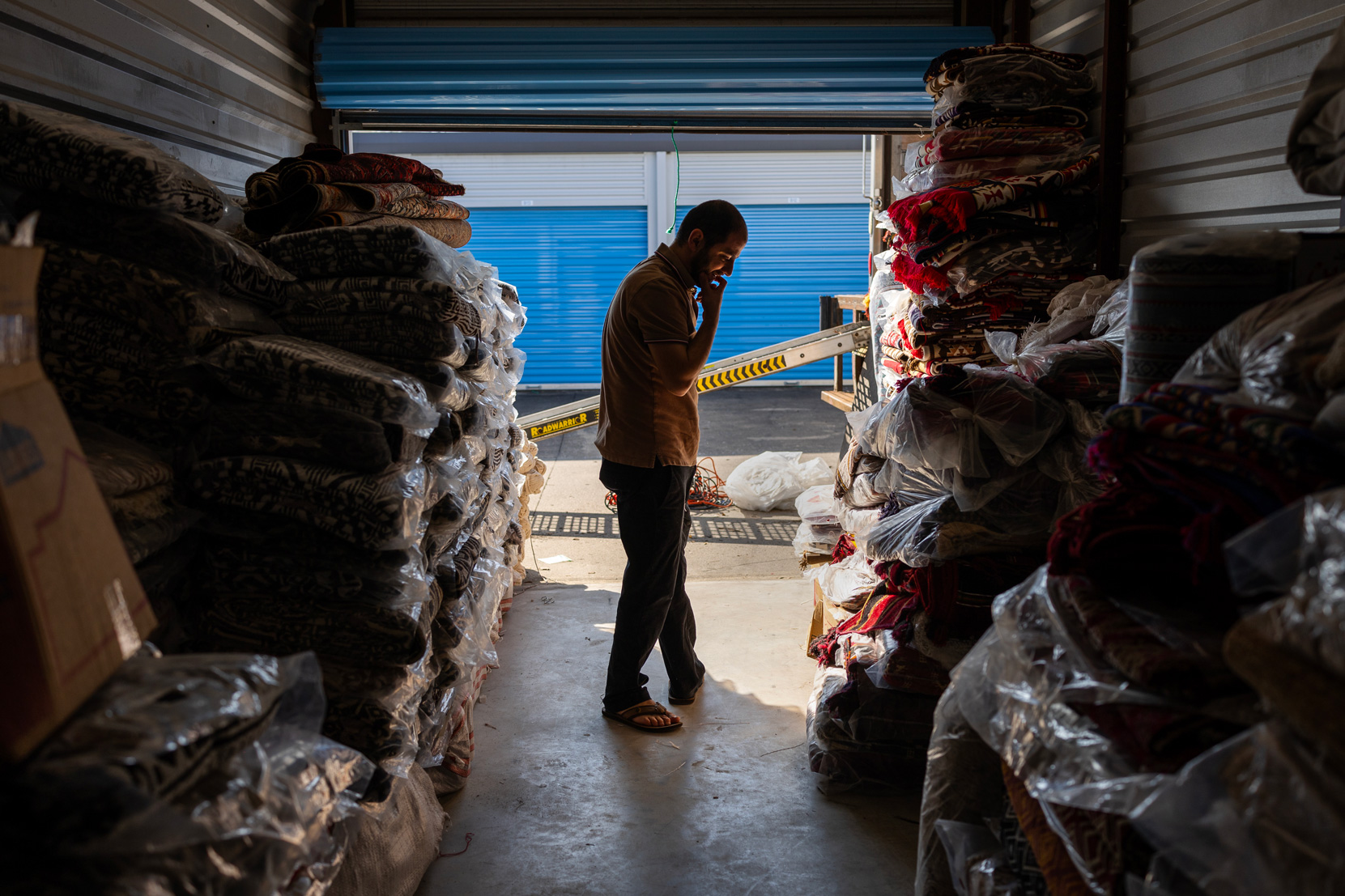
 Before each market, Mahmoud Koseyaem goes to his storage locker and picks out the items he wants to sell. Because of his families expertise and history in rug making, Koseyaem is able to distinguish which rugs will sell best for the American market. (Antranik Tavitian / Houston Landing)
Before each market, Mahmoud Koseyaem goes to his storage locker and picks out the items he wants to sell. Because of his families expertise and history in rug making, Koseyaem is able to distinguish which rugs will sell best for the American market. (Antranik Tavitian / Houston Landing)
Since moving to the U.S., the family has diversified their business Magic Rugs, selling Koseyaem’s handwoven rugs and reselling imported rugs, antiques and Middle Eastern goods on their Etsy and at various markets. They’re a staple at many markets around the area, including Round Top and Canton Market, and they’ve traveled as far as Arizona to set up shop.
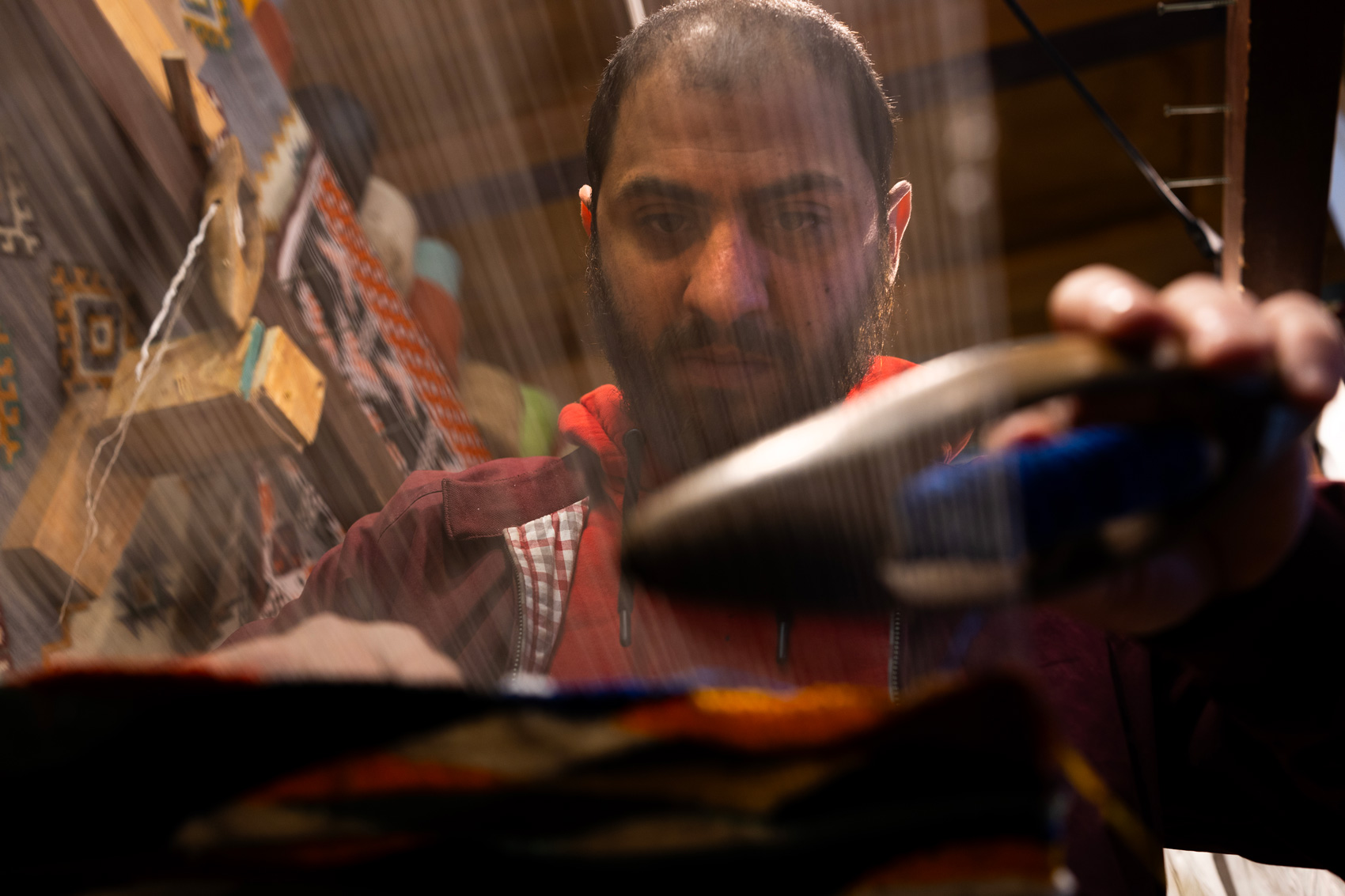
 Mahmoud Koseyaem weaves on a traditional loom at First Monday Trade Days flea market in Canton, Saturday, Jan. 4, 2025, in Canton. (Antranik Tavitian / Houston Landing)
Mahmoud Koseyaem weaves on a traditional loom at First Monday Trade Days flea market in Canton, Saturday, Jan. 4, 2025, in Canton. (Antranik Tavitian / Houston Landing)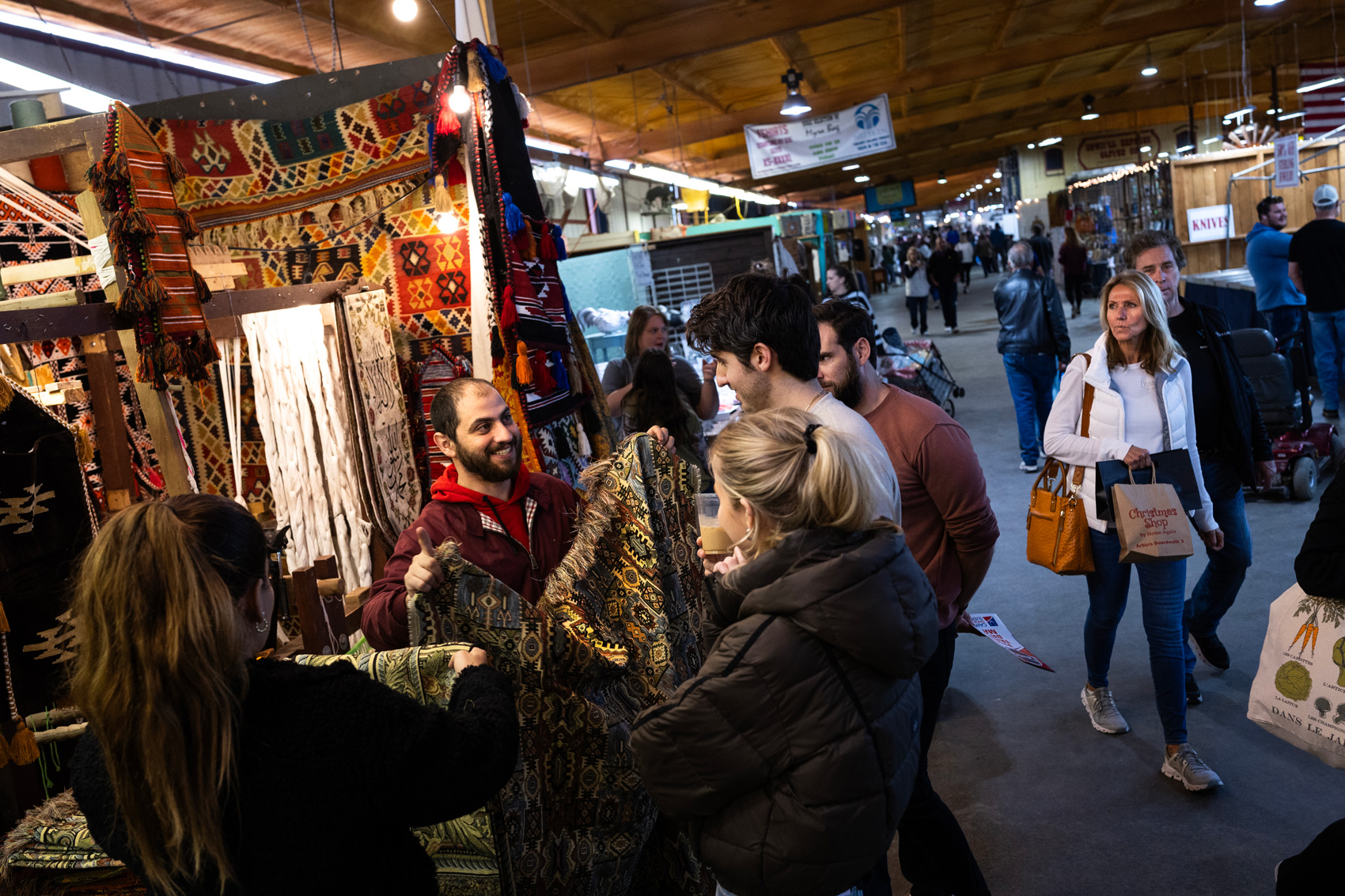

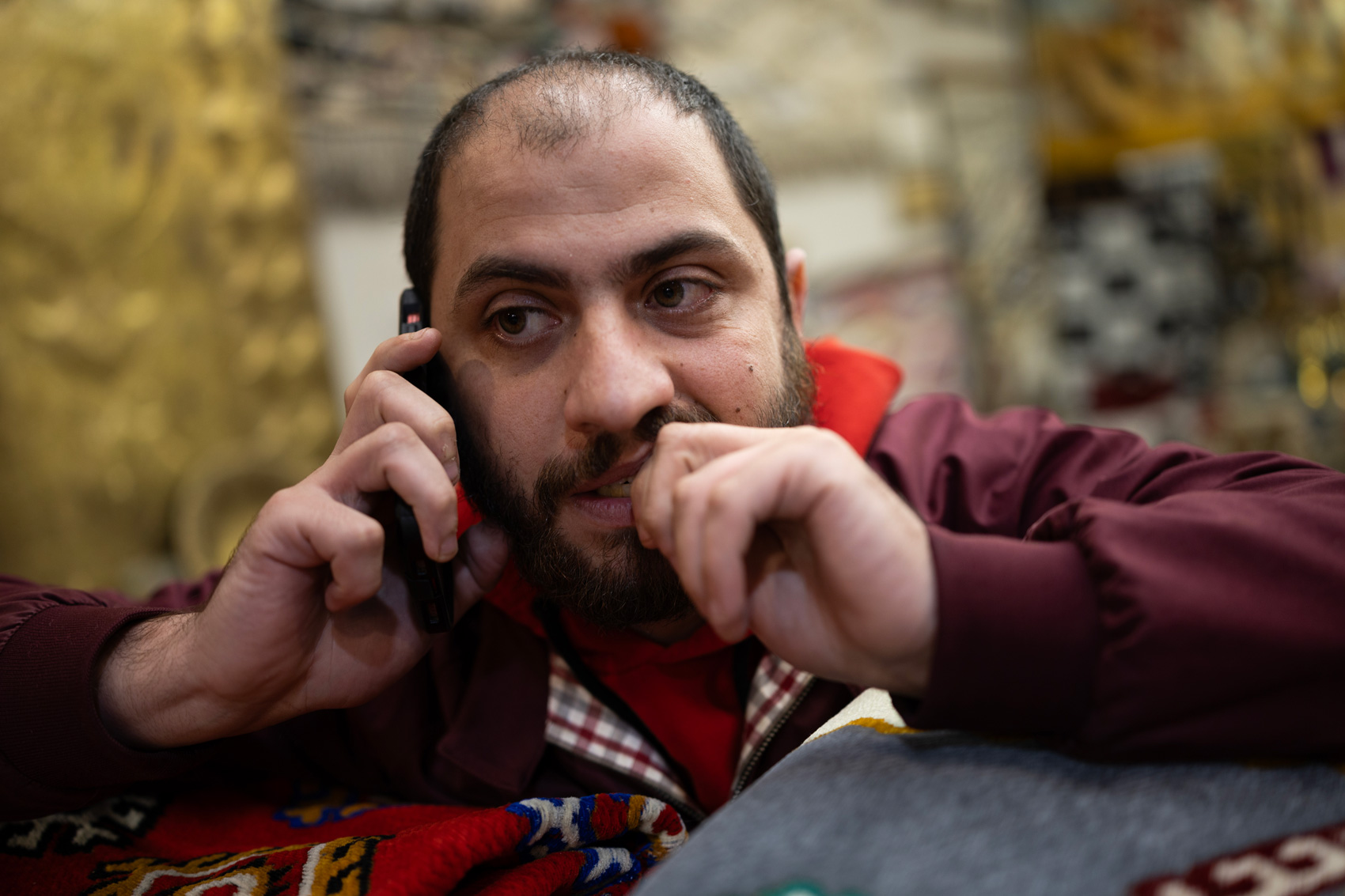

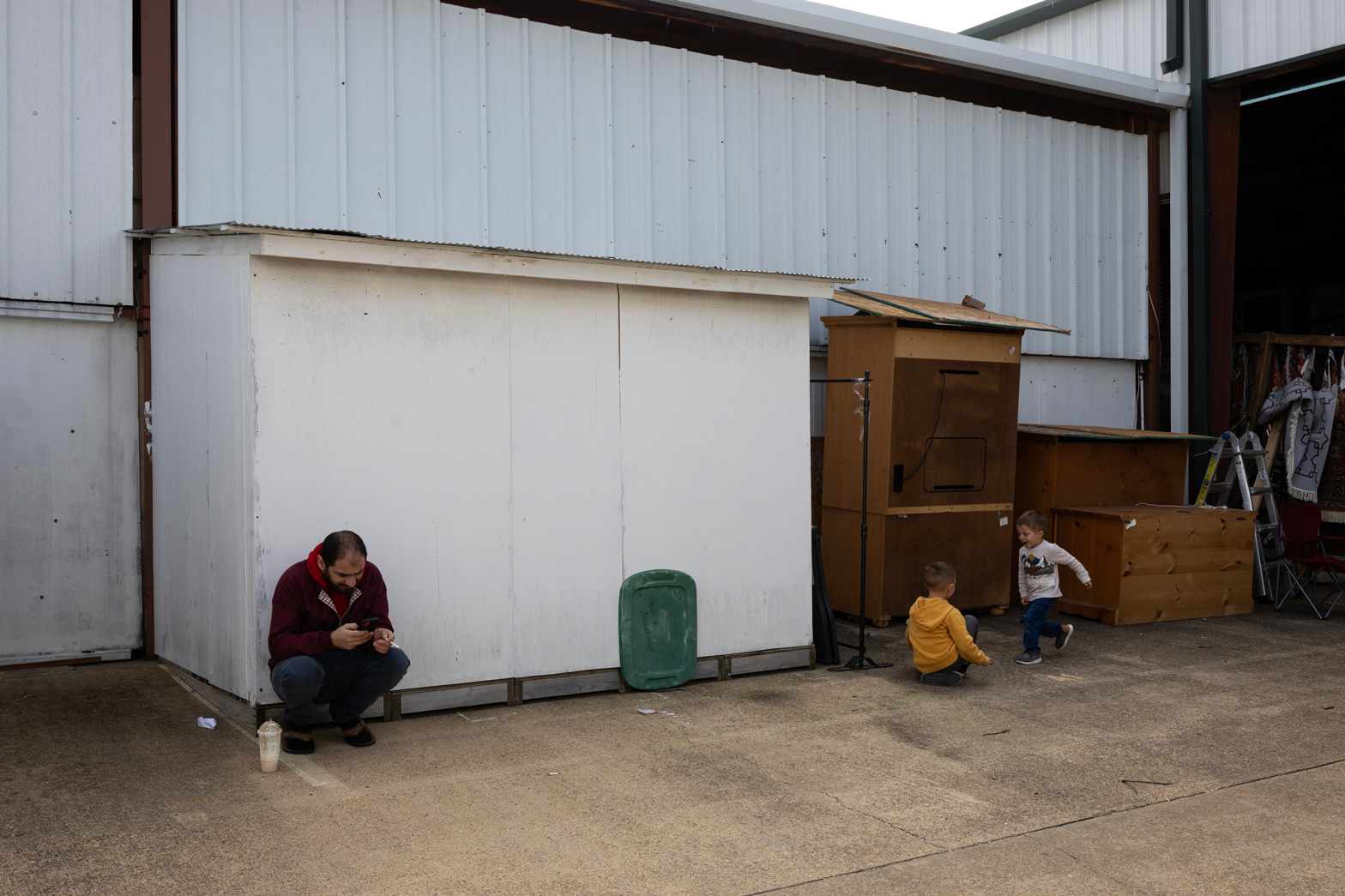

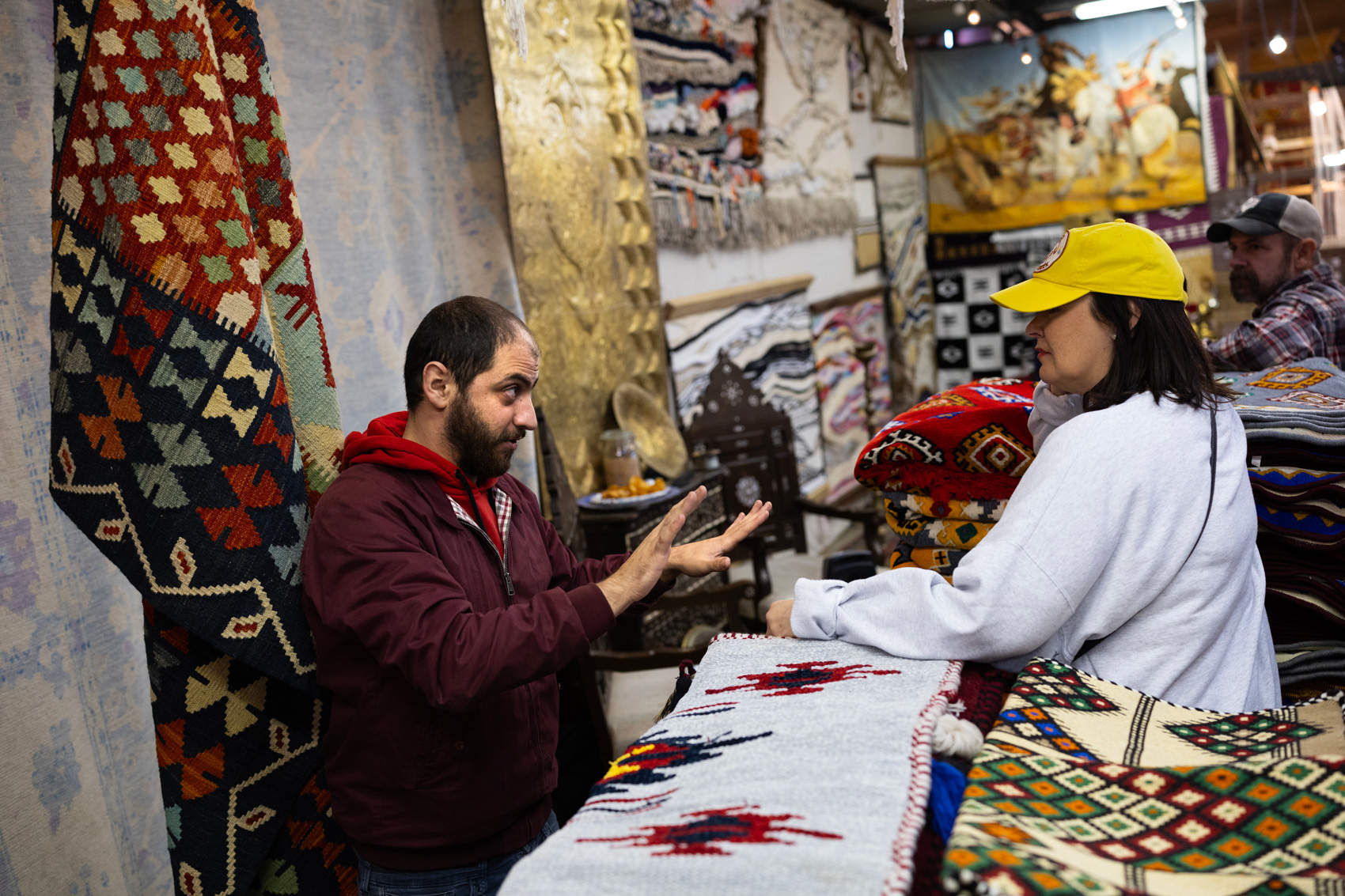

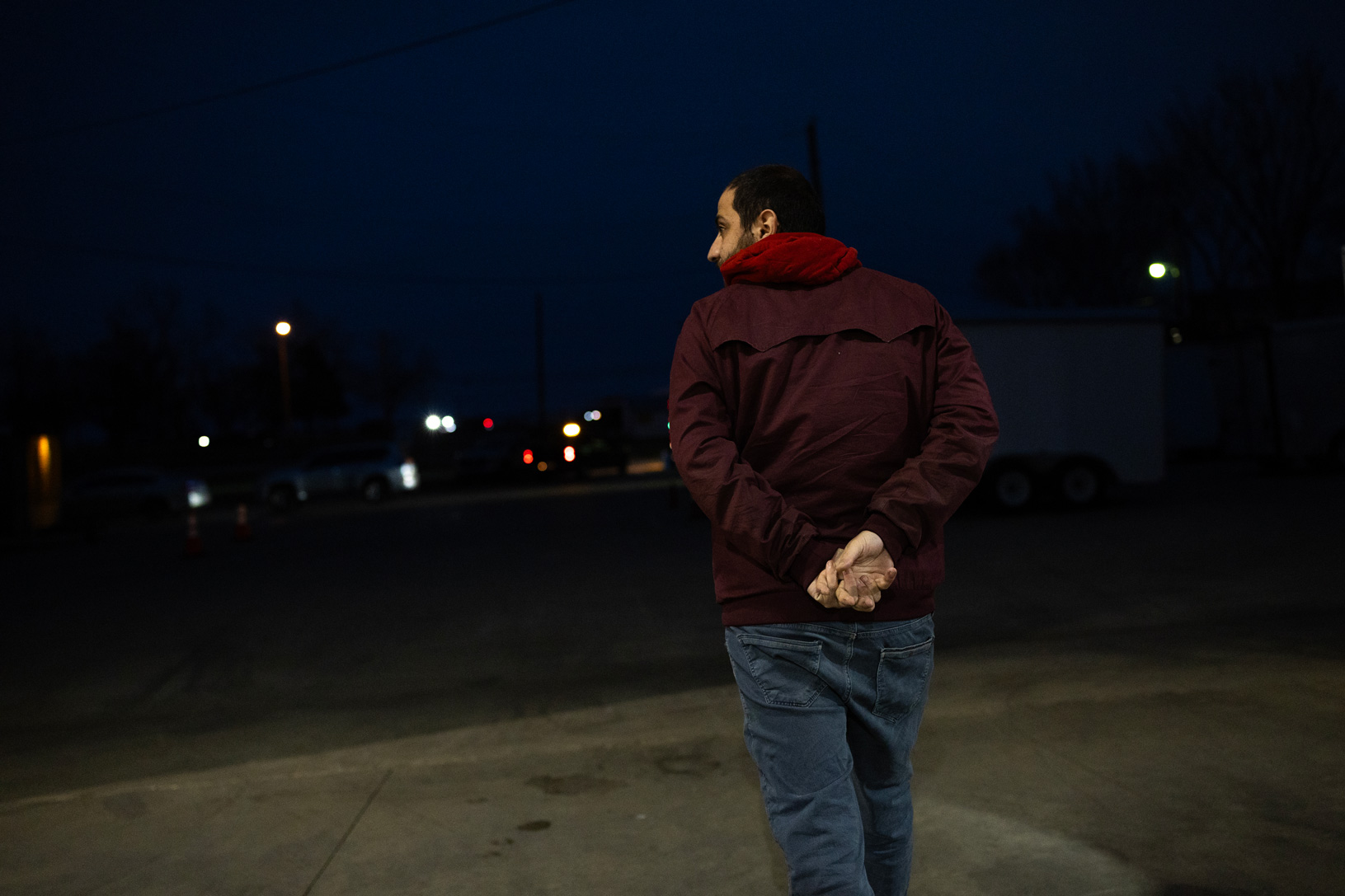
 Each month, Mahmoud Koseyaem attends the First Monday Trade Days flea market where the week weaving for people on his original loom, selling antique rugs and his originals. Kristi Stewart, at bottom left, bought a large antique sectional rug while a group of four took home a set of smaller rugs. (Antranik Tavitian / Houston Landing)
Each month, Mahmoud Koseyaem attends the First Monday Trade Days flea market where the week weaving for people on his original loom, selling antique rugs and his originals. Kristi Stewart, at bottom left, bought a large antique sectional rug while a group of four took home a set of smaller rugs. (Antranik Tavitian / Houston Landing)
Almost five years after moving to Texas, Koseyaem has few regrets. “You never know what’s gonna happen to you in the market,” he said. “You never know, like, literally you never know. You just have to do it. Don’t be afraid, don’t be scared.”
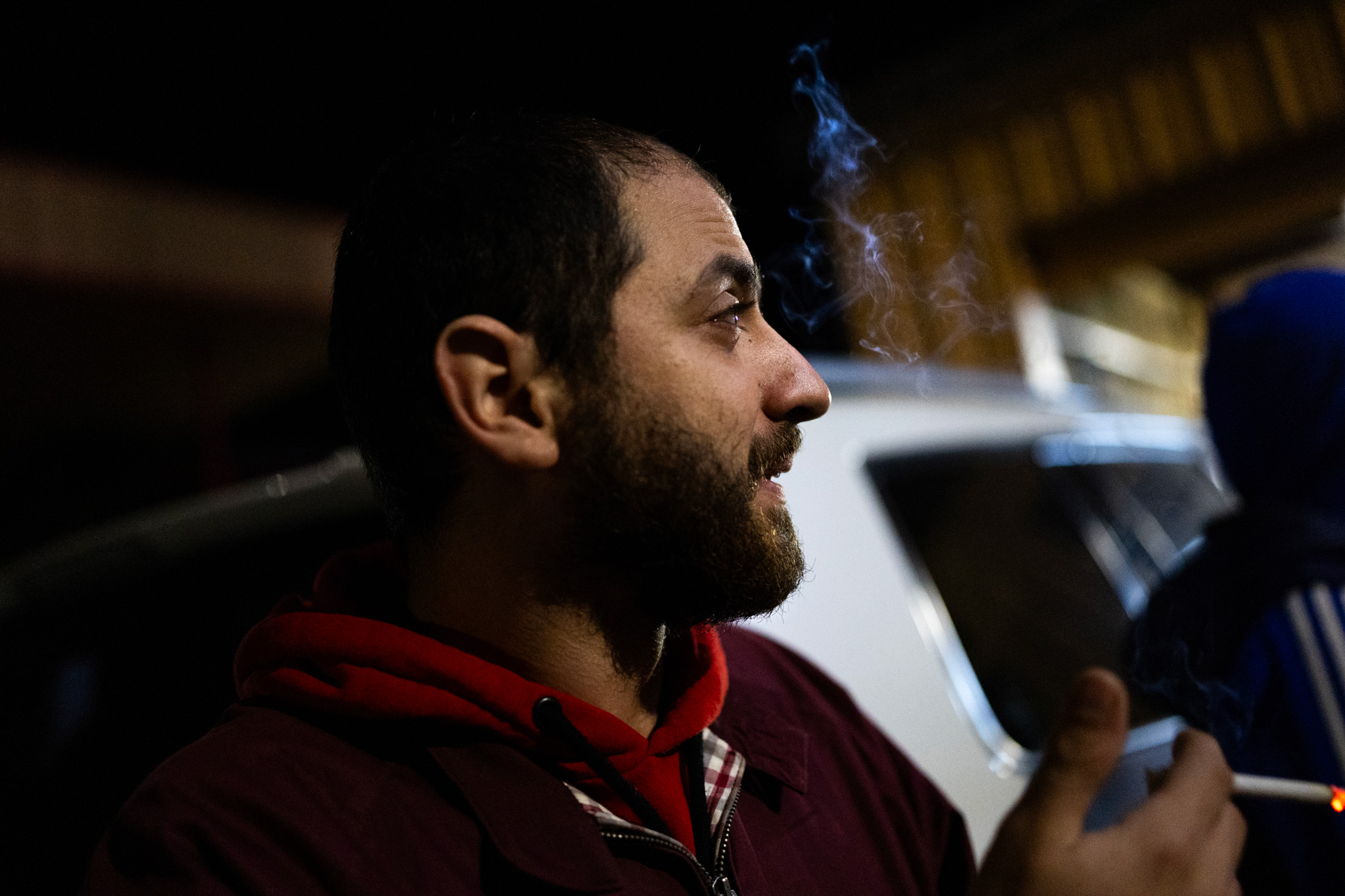

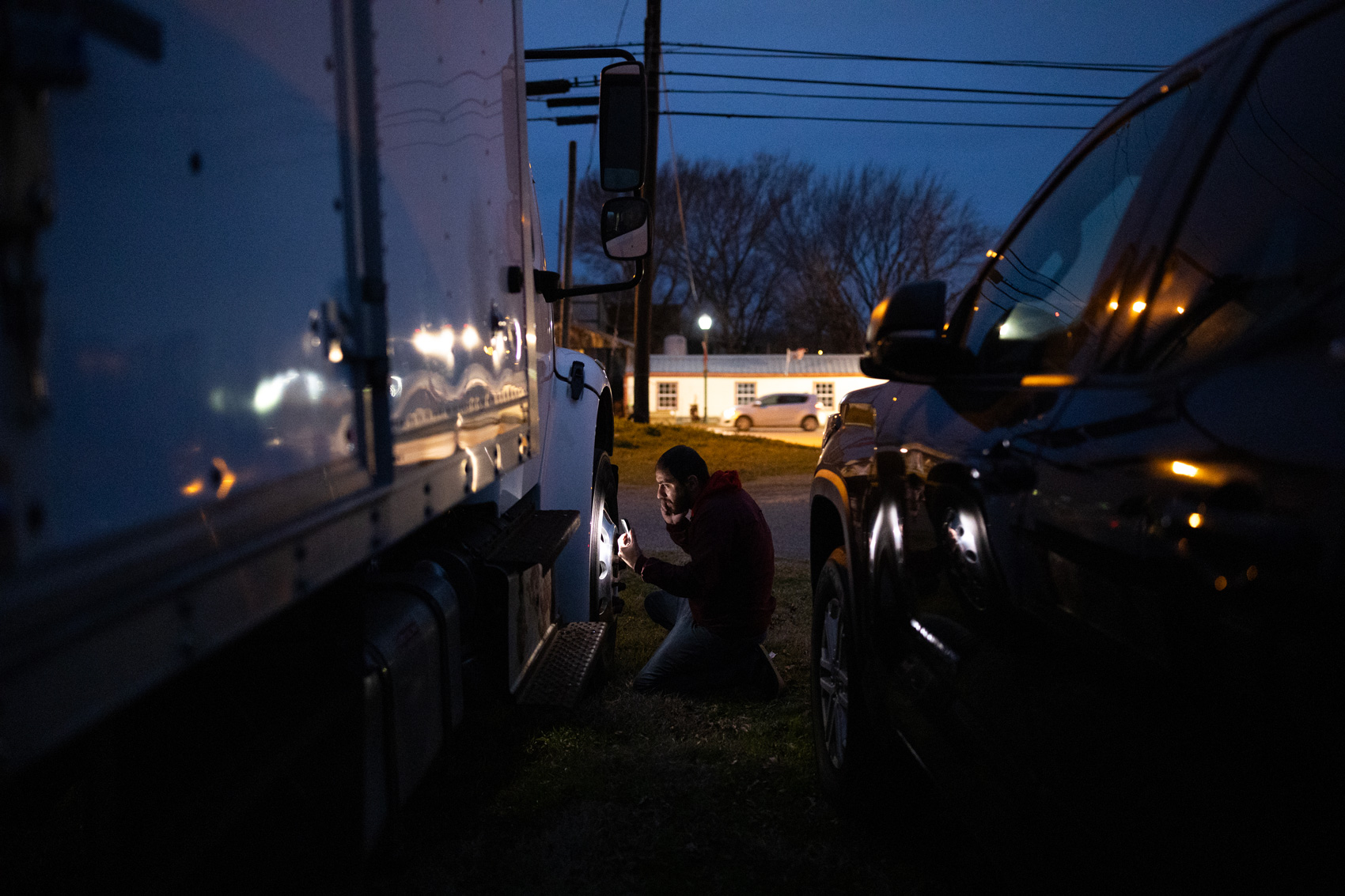

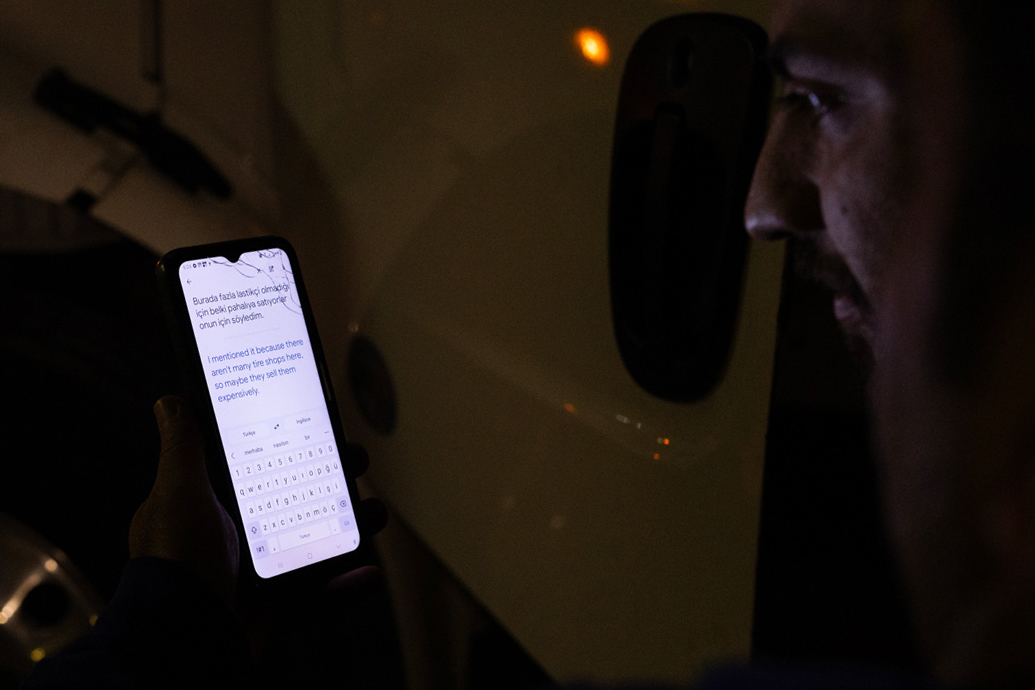



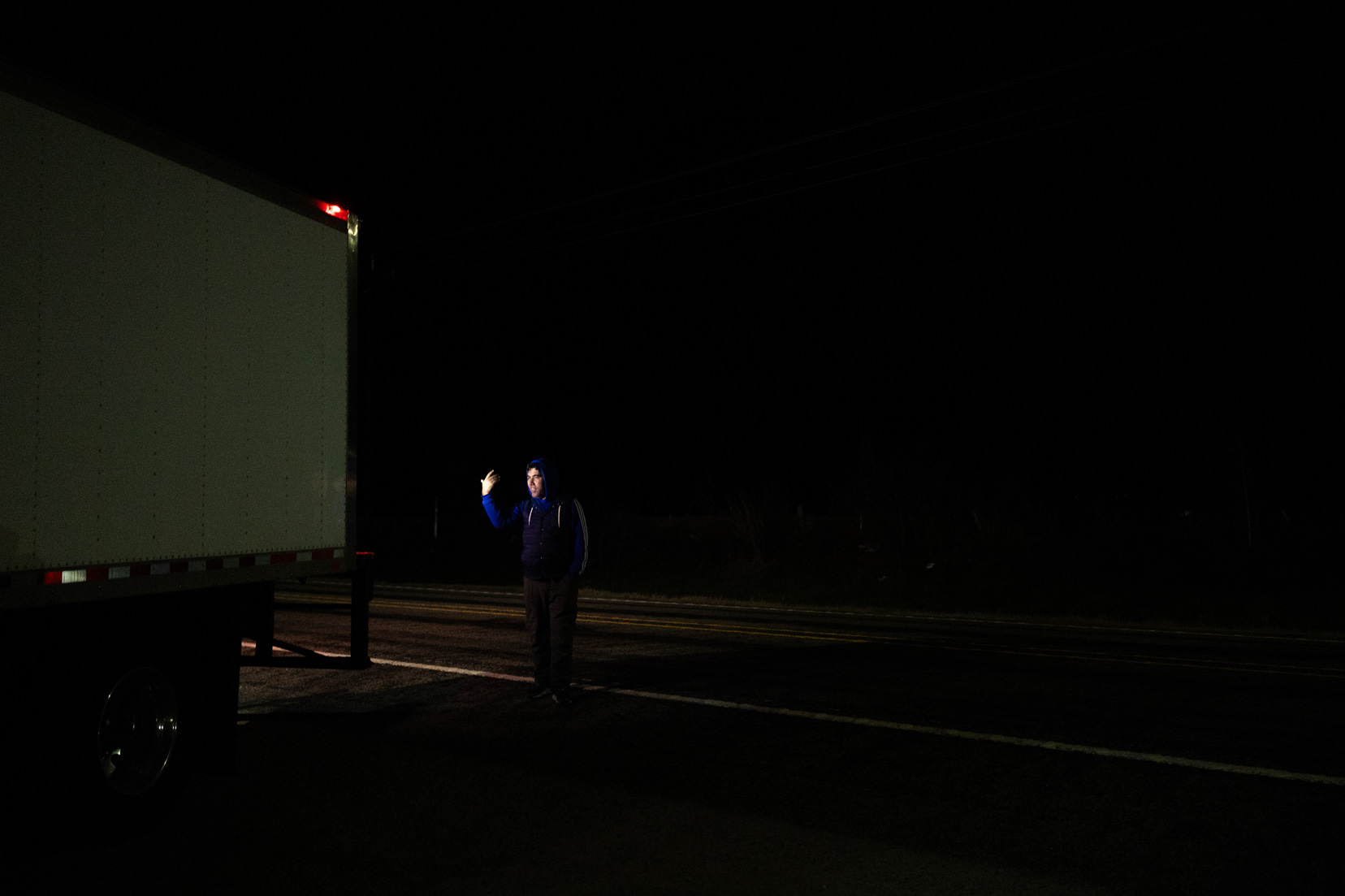
 After a couple of days spent at the Canton market, it was time for Koseyaem to head to his next market in Arizona. Before he could leave, he realized the tires on his new truck were completely worn. He and his employee for the month, Abdurrazak Cokur of Turkey, drove to a nearby tire shop to get it changed. (Antranik Tavitian / Houston Landing)
After a couple of days spent at the Canton market, it was time for Koseyaem to head to his next market in Arizona. Before he could leave, he realized the tires on his new truck were completely worn. He and his employee for the month, Abdurrazak Cokur of Turkey, drove to a nearby tire shop to get it changed. (Antranik Tavitian / Houston Landing)
Koseyaem hopes to visit Aleppo again in the future. After the Al-Assad regime fell in December, that hope feels more secure to him.


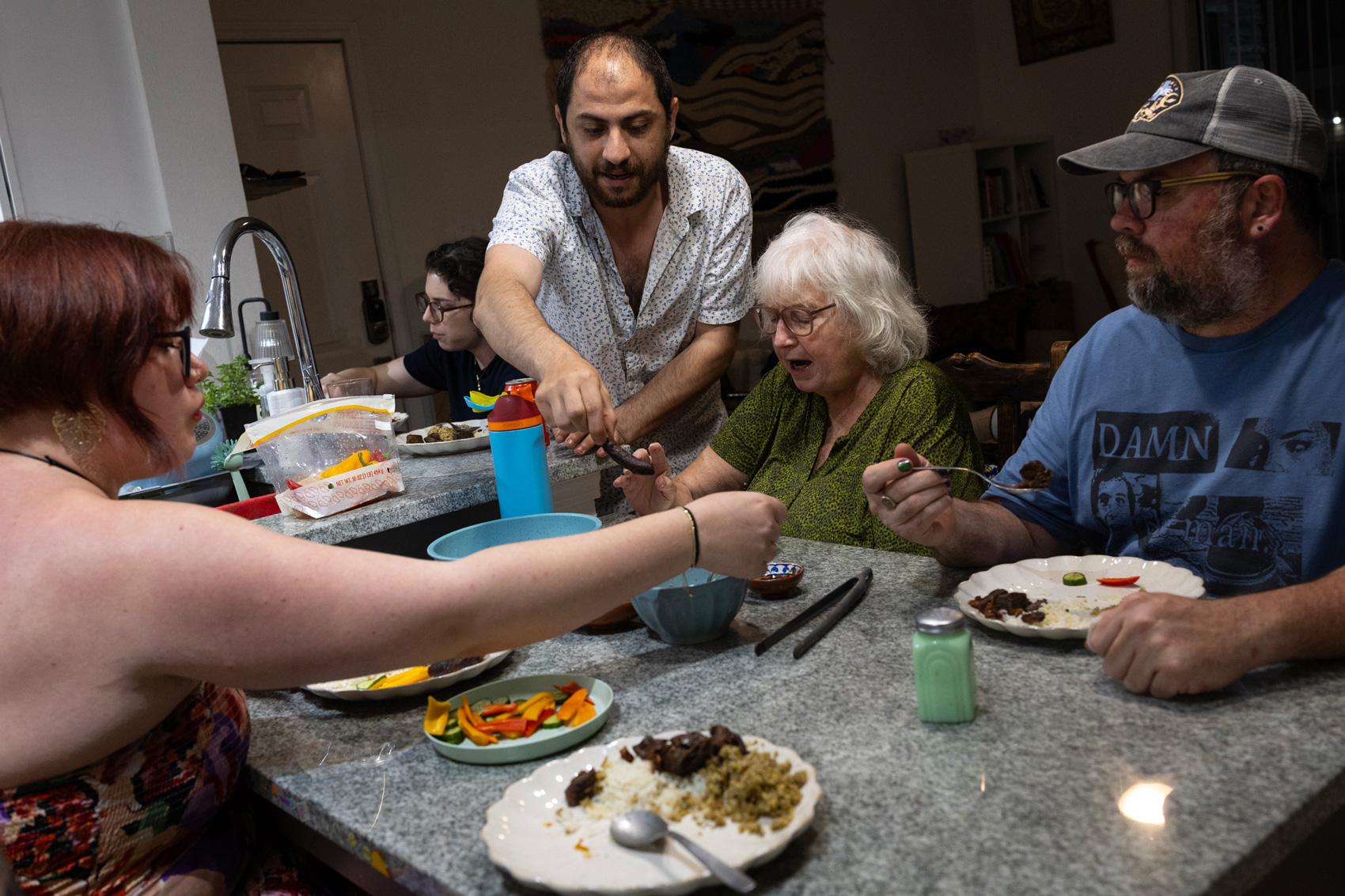

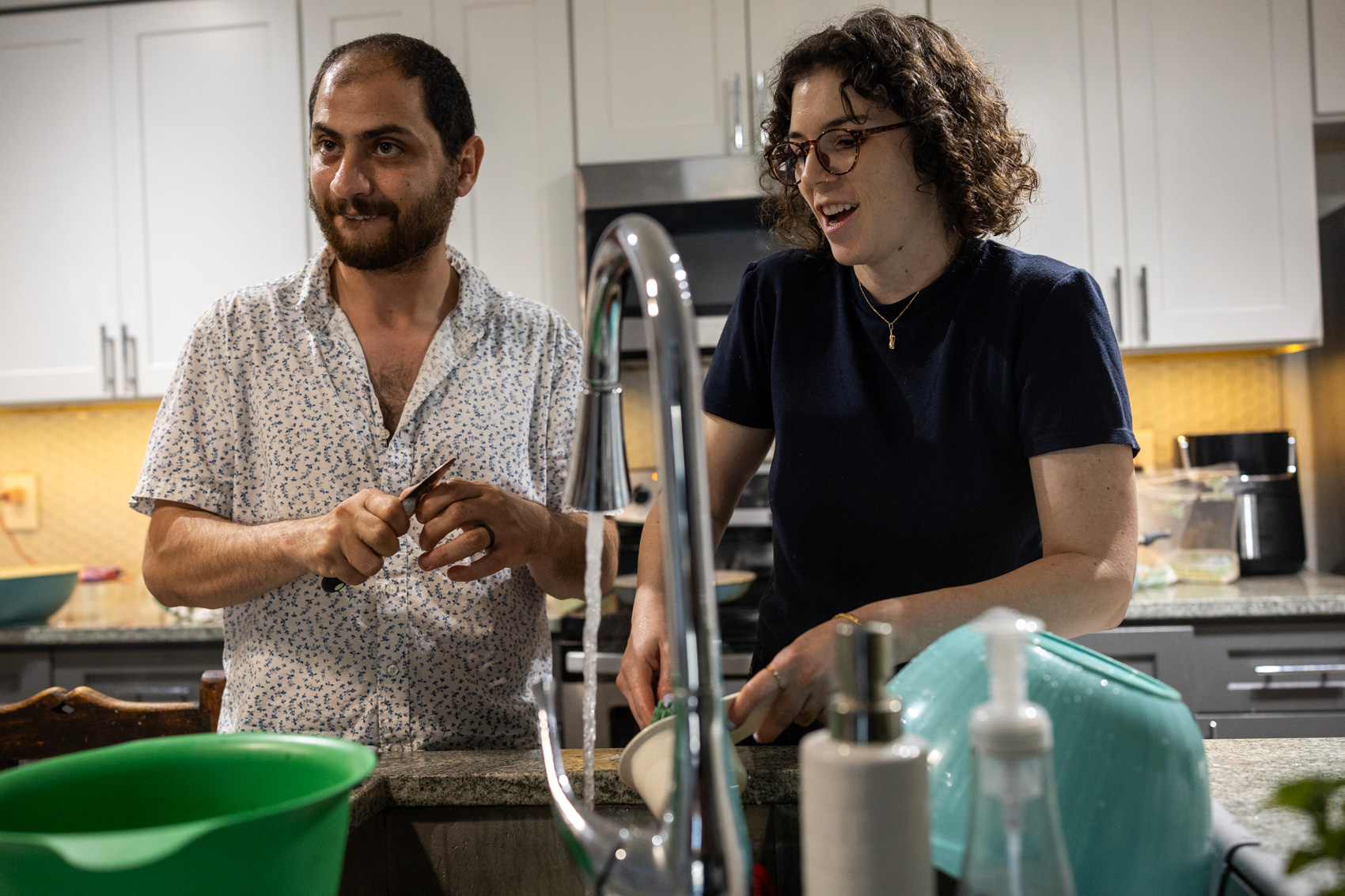

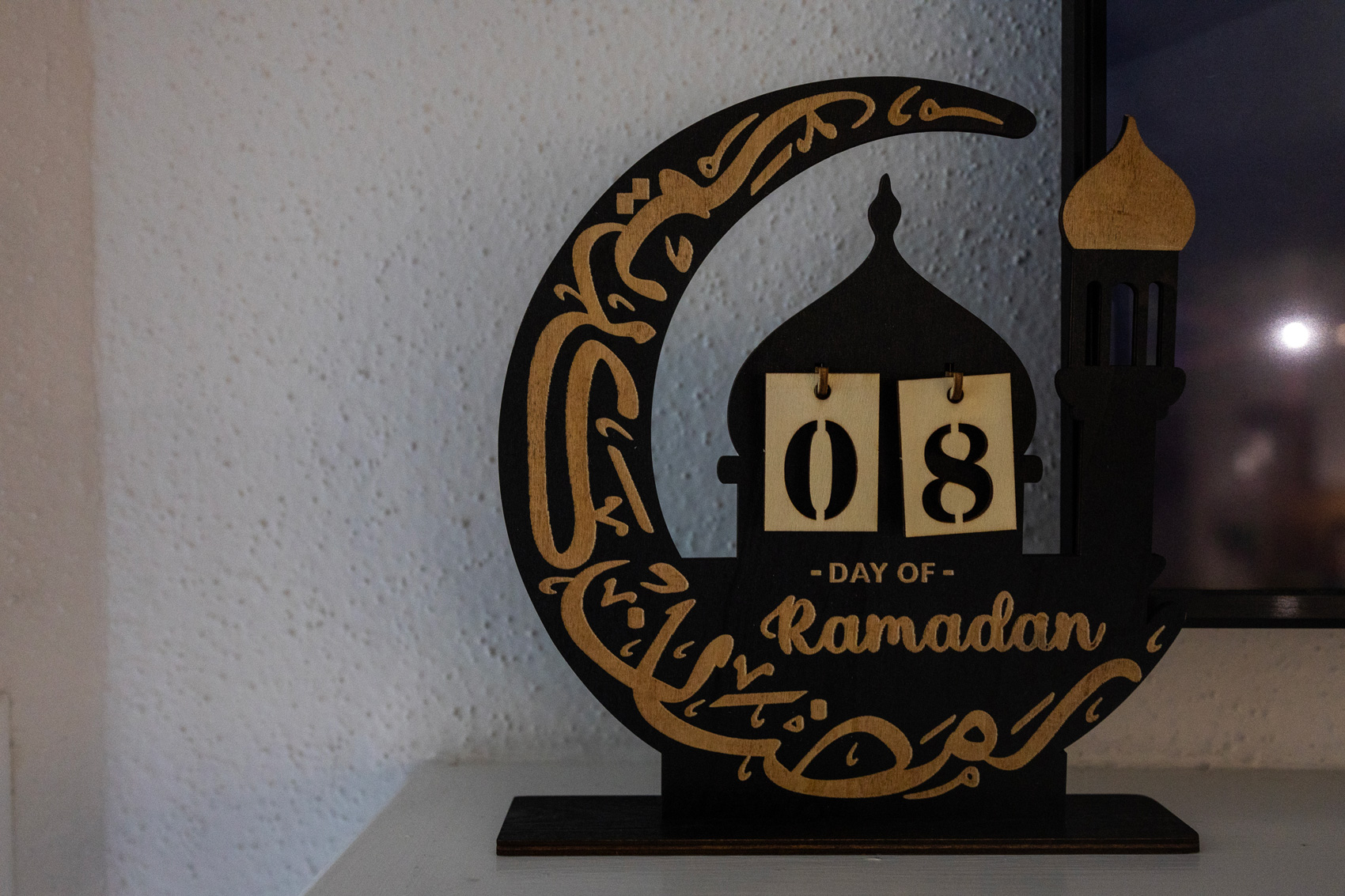

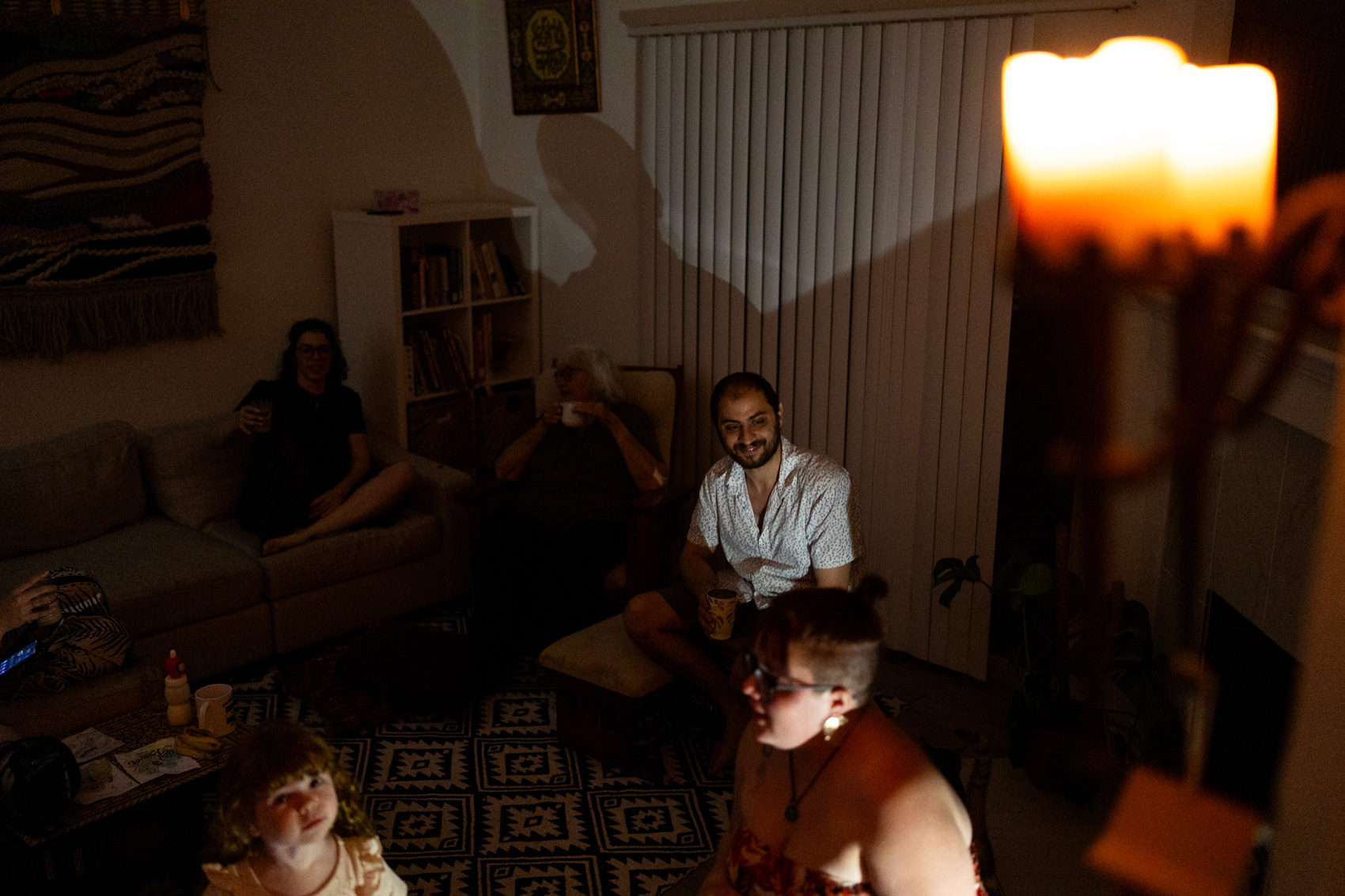
 Ramadan, the Muslim Holy month, is a special time for Mahmoud Koseyaem. It’s been nearly 14 years since he was in Syria. He often speaks about missing the street food and his family. Koseyaem and his in-laws decided to celebrate Eid on the 8th day of Ramadan with a night time dinner to break fast. They ate freekeh, rice, beef sausage dipped in pomegranate molasses, steak seared with spices and dates- all the foods from his hometown of Aleppo. (Antranik Tavitian / Houston Landing)
Ramadan, the Muslim Holy month, is a special time for Mahmoud Koseyaem. It’s been nearly 14 years since he was in Syria. He often speaks about missing the street food and his family. Koseyaem and his in-laws decided to celebrate Eid on the 8th day of Ramadan with a night time dinner to break fast. They ate freekeh, rice, beef sausage dipped in pomegranate molasses, steak seared with spices and dates- all the foods from his hometown of Aleppo. (Antranik Tavitian / Houston Landing)
“I am dying to go back and eat this Syrian sweet that they used to have in the old markets,” he said. “It’s like I’m just dying to have it. I miss my mom. Just not to be mean or whatever, I really miss that sweet.”
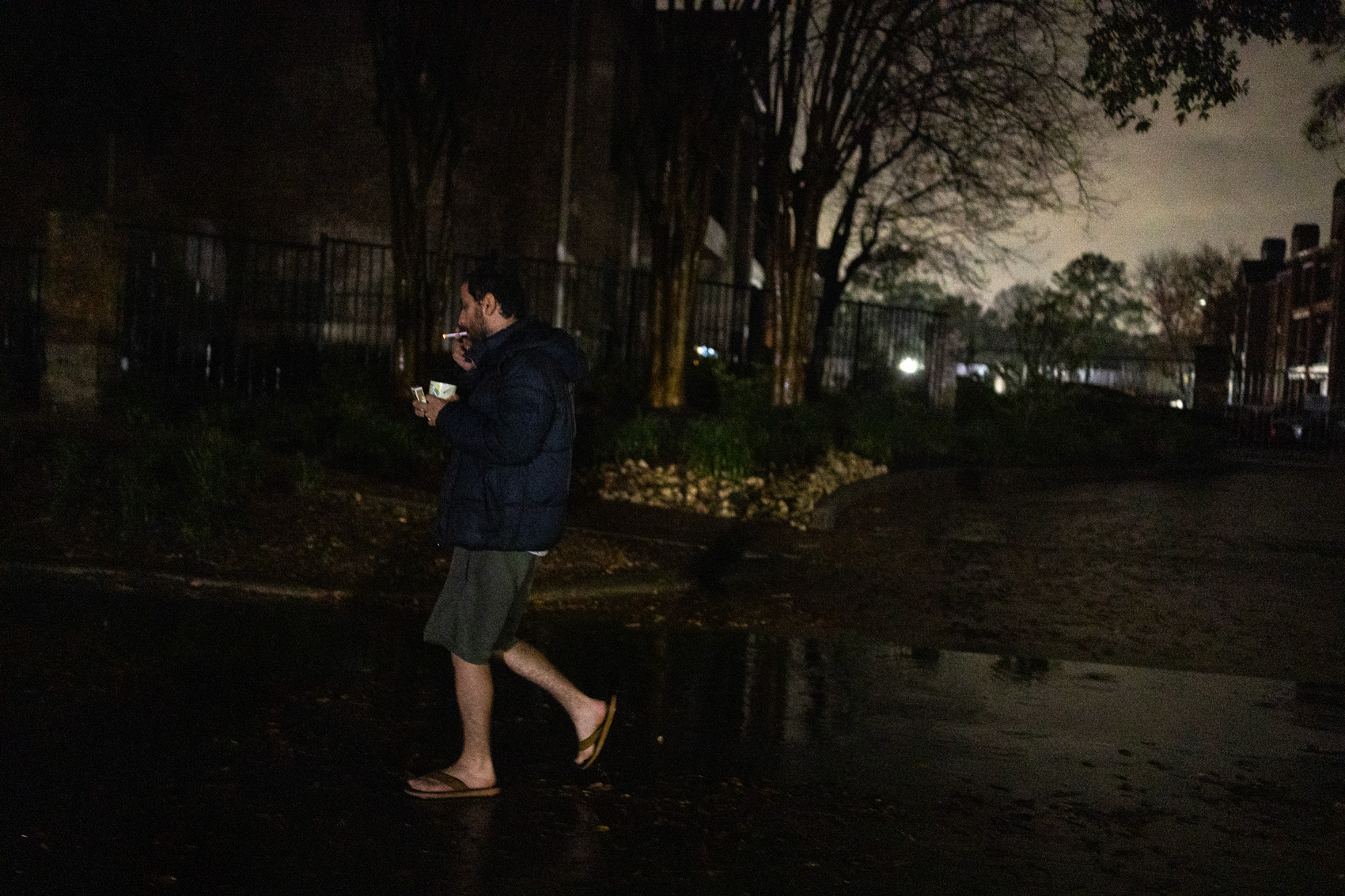

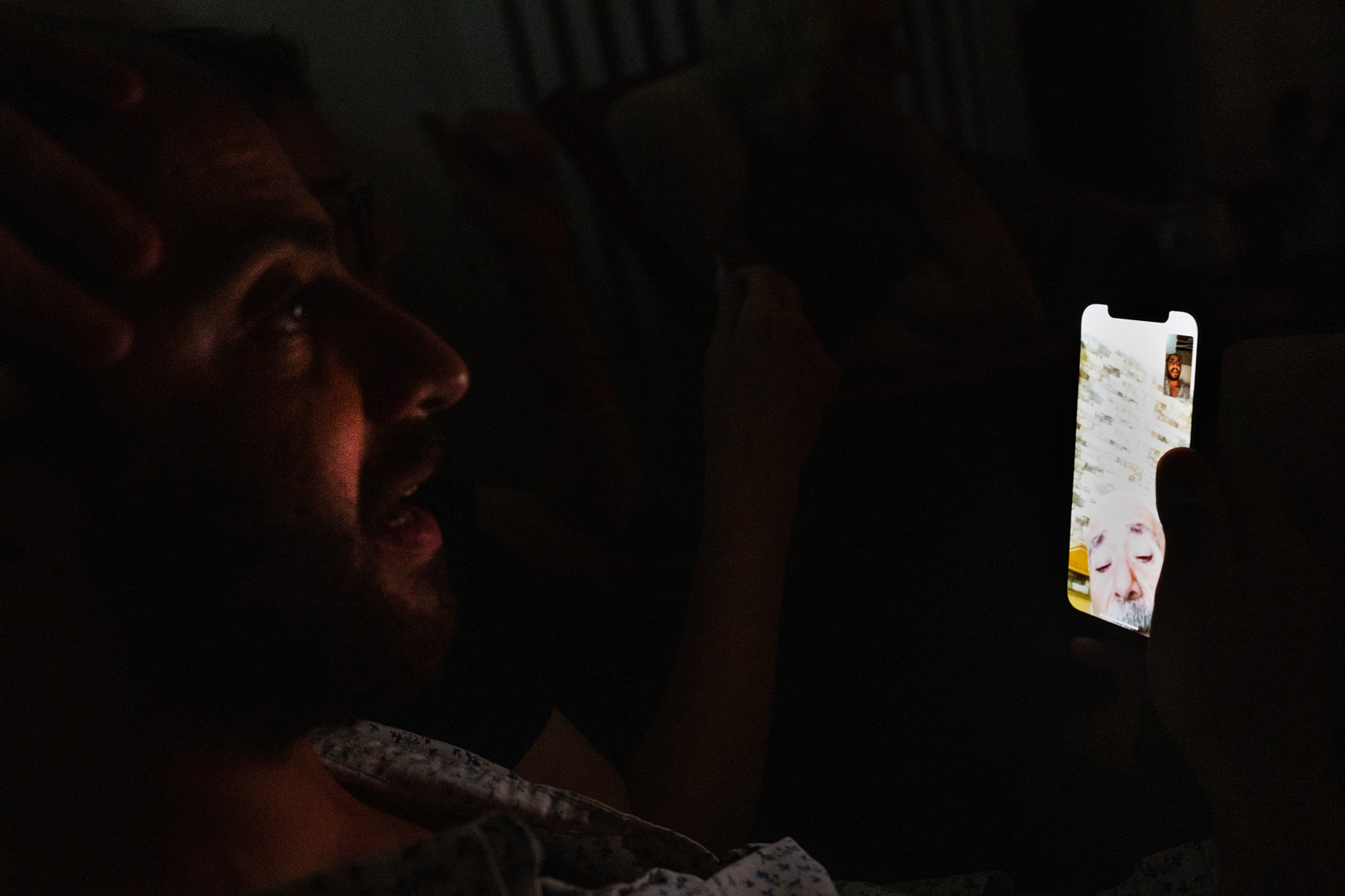

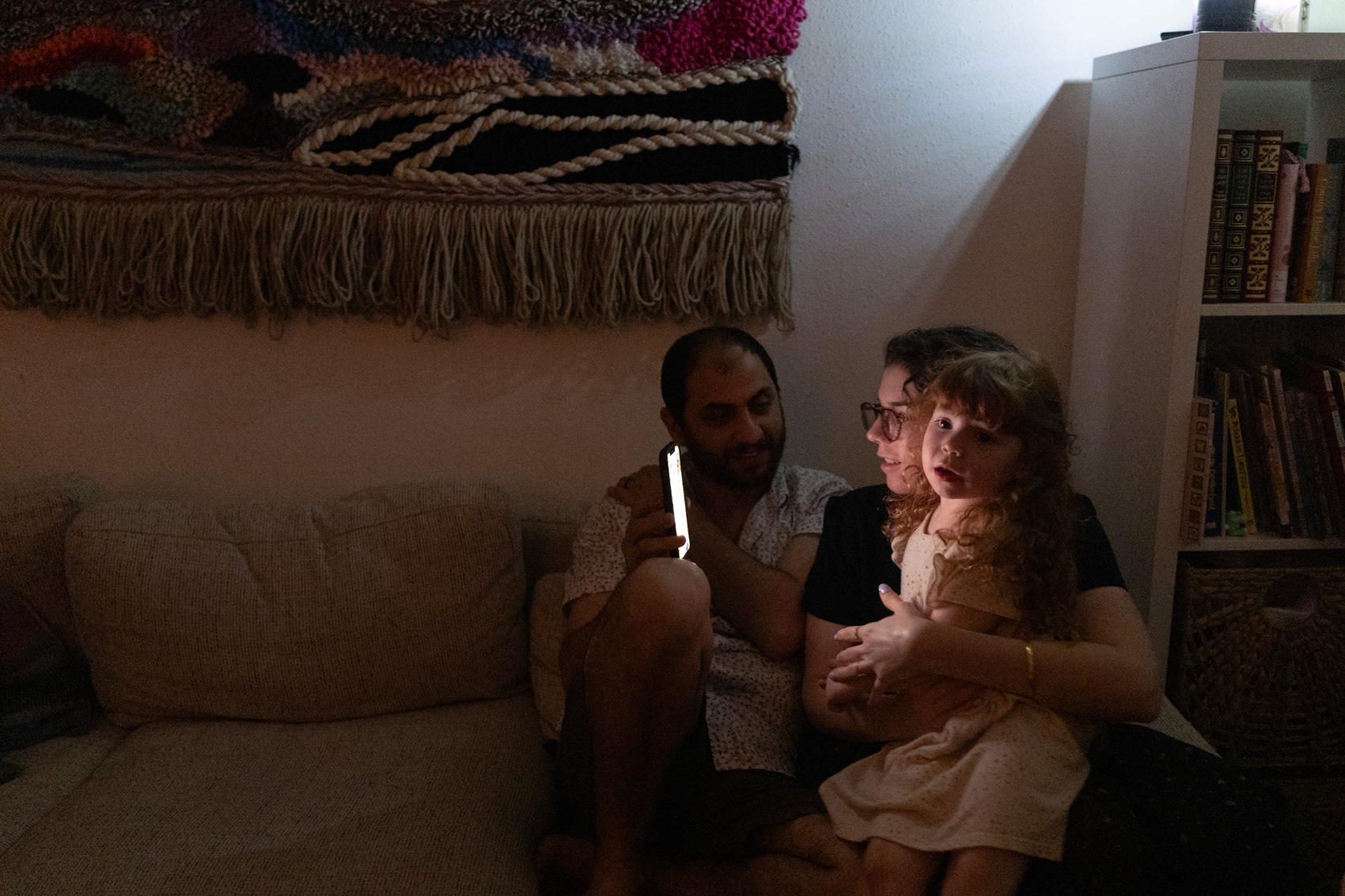
 As Mahmoud Khsyaem was finishing making tea to wash down their meal, a storm rolled through and cut the power in their apartment building for hours. “Now we’re a real Syrian family,” Koseyaem said, referring to the regular blackouts in his home country of Syria. Later in the night, Koseyaem got a FaceTime call from his father Abdulkadr Mahmoud Kysyaem who lives in Aleppo with the rest of Mahmoud’s family. The pair spoke for nearly an hour and ended with his father wishing him Eid Mubarak. (Antranik Tavitian / Houston Landing)
As Mahmoud Khsyaem was finishing making tea to wash down their meal, a storm rolled through and cut the power in their apartment building for hours. “Now we’re a real Syrian family,” Koseyaem said, referring to the regular blackouts in his home country of Syria. Later in the night, Koseyaem got a FaceTime call from his father Abdulkadr Mahmoud Kysyaem who lives in Aleppo with the rest of Mahmoud’s family. The pair spoke for nearly an hour and ended with his father wishing him Eid Mubarak. (Antranik Tavitian / Houston Landing)
Related
